Freedom to Protest Is Under Attack – Why It Matters for Everyone

When states suppress public protests, they don’t just target activists, they erode the rights of all citizens. The latest crackdowns in Hungary, Turkey, and beyond show why defending freedom of assembly is more urgent than ever.
On 8 March, people took to the streets to mark International Women’s Day, but their right to march was actively suppressed in many places. From Kazakhstan to Turkey and Azerbaijan, authorities used intimidation, force, and legal threats to prevent women from gathering, exposing a broader pattern of restrictions on civil society. Meanwhile, in Hungary, the government has escalated its efforts to suppress freedom of assembly, passing a law that explicitly bans Pride marches and introduces surveillance measures to deter participation.
Crackdowns on feminist and LGBTI protests
Ahead of Women’s Day, Kazakhstan authorities detained LBT activists from Feminita, using penal and administrative tactics to suppress their activism. In Turkey, nearly 200 people were detained in Istanbul alone, with police blocking demonstrations across multiple cities on the 8th. Among those detained was a trans woman, underscoring how trans activists are often specifically targeted. In Azerbaijan, feminist activist Rauf Heydarov was sentenced to 30 days of detention after attempting to display a poster on 8 March, with fabricated charges used to justify their arrest. These cases illustrate how states use arbitrary detentions and legal mechanisms to intimidate activists and restrict their right to assemble and protest.
Hungary: From threats to an outright ban on Pride
In Hungary, restrictions on freedom of assembly have intensified dramatically. What started as a “child protection” law—banning the “depiction or promotion” of homosexuality to minors and widely condemned by EU leaders, the European Commission, and the Council of Europe as violating international human rights standards—has now escalated into a nationwide ban on Pride marches. The new law not only criminalises these events but also permits the use of facial recognition technology to track and penalise participants. Despite this, the Budapest Pride organisers remain committed to marching, demonstrating the resilience of the movement in the face of increasing authoritarianism.
A key indicator of democratic health
These events in Hungary, Turkey, Kazakhstan, and Azerbaijan are not isolated incidents. They reflect a broader trend in which governments seek to silence peaceful and legitimate dissent by restricting public demonstrations, targeting women’s rights and LGBTI activists, and using legal measures to suppress fundamental rights. The ability to protest is a key indicator of democratic health. When states criminalise peaceful assembly, they erode not just rights for LGBTI people and women, but the broader foundation of civil liberties for all.
As these threats grow, the international response must be clear. Governments, the EU, and international institutions must hold states accountable for these violations and stand in firm defence of the right to protest. Freedom of assembly is not just an LGBTI or feminist issue; it is central to human rights and democracy. When one group’s right to gather is restricted, the ability of all people to organise and demand change is at risk.
The human right to assemble and protest must be protected, defended, and upheld.
ILGA-Europe Statement: Turkey is detaining LGBTI+ activists and journalists, and targeting basic rights

The Turkish government has intensified its repression of LGBTI+ human rights defenders, detaining activists and introducing draconian laws that further restrict legal gender recognition, trans healthcare, and free expression. The proposed measures mirror anti-LGBTI+ laws in Russia and Hungary, prompting urgent calls for action.
The last two weeks have seen an increasingly severe crackdown on LGBTI+ human rights defenders and activists in Turkey. This comes during a time when the Turkish government is eroding civic rights and freedoms, including detaining journalists, opposition politicians, and targeting civil society organisations (CSOs) through smear campaigns and further restrictive legislation.
On 18 February, journalist and Editor-in-Chief of KaosGL.org, a news portal dedicated to LGBTI+ issues, Yıldız Tar, was arrested and accused of “membership in a terrorist organisation”. They were arrested alongside a number of journalists, activists (including Erkin – a trans activist), artists and opposition MPs, amounting to 52 arrests that day.
The following week, on 27 February, draft amendments of the Turkish government were leaked to the press which aim to amend the Criminal and Civil Codes to further restrict access to legal gender recognition and trans-specific healthcare, ad criminal sanctions to these as well as criminal sanctions for “any person who publicly encourages, praises or promotes attitudes and behaviors contrary to innate biological sex and public morality” and “persons of the same sex [who] perform an engagement or marriage ceremony”.
The further restrictions to accessing legal gender recognition are:
- Increasing the age of eligibility from 18 to 21.
- Reintroducing mandatory sterilisation (a provision previously annulled by the Constitutional Court and found to violate the European Convention of Human Rights by the European Court of Human Rights (ECtHR)).
- Introducing a lengthier process for approval, requiring an official medical board report to be issued by a “full-fledged training and research hospital designated by the Ministry of Health as a result of four evaluations to be made at least three months apart” (previously it was to be obtained from a training and research hospital), with no maximum duration set, potentially allowing indefinite delays.
Additionally, a new requirement for accessing trans-specific healthcare is introduced, stipulating that it can only be carried out after permission is obtained from one of the above-described hospitals designated by the Ministry of Health.
The criminal sanctions being introduced include sentences of:
- 3-7 years imprisonment and a judicial fine from 1,000-10,000 days for anyone who commits gender reassignment surgery contrary to the new provisions, with the recipient of the surgery facing 1-3 years imprisonment.
- 1-3 years imprisonment for “Any person who publicly encourages, praises or promotes attitudes and behaviors contrary to innate biological sex and public morality”.
- 1.5-4 years imprisonment for “persons of the same sex [who] perform an engagement or marriage ceremony”.
These new legislative restrictions will further restrict the already inaccessible process of legal gender recognition and access to trans-specific healthcare in Turkey (see our previous statement regarding this), making legal and medical transition nearly impossible.
The requirement for mandatory sterilisation and medical certification in order to access legal gender recognition has already been deemed abusive by international human rights bodies. ECtHR case law is clear that such requirements are in violation of the right to privacy and the right to bodily integrity. The Parliamentary Assembly of the Council of Europe (PACE) has called on its member states to “develop quick, transparent and accessible procedures, based on self-determination”. The UN Independent Expert on Protection Against Violence and Discrimination Based on Sexual Orientation and Gender Identity has also recommended that legal gender recognition should be based on self-determination, be a simple administrative process, and not require applicants to fulfil abusive requirements such as surgical interventions or requiring medical certification.
A clear discriminatory attack
The new proposal for criminal sanctions for anyone “who publicly encourages, praises or promotes attitudes and behaviors contrary to innate biological sex and public morality” will impact ordinary people wishing to dress or be called in a way that is different from their biological sex assigned at birth, but also it will also target any debate, awareness raising, or portrayal of topics related to challenging gender binarism, which will impact LGBTI+ people, LGBTI+ CSOs, journalists, and other organisations or people defending freedom of expression.
The criminalisation of symbolic engagement and marriage ceremonies represents a clear discriminatory attack against the LGBTI+ community, who simply wish to honour their partnerships and love in a country where there is no possibility for a legal recognition of same-sex relationships.
The proposals’ provisions are similar to the anti-”LGBTI propaganda” laws seen already in Russia, Hungary and Bulgaria. The European Court of Human Rights has already ruled the Russian law to violate freedom of expression and the prohibition of discrimination, and the EU has launched infringement proceedings against both Hungary and Bulgaria for their laws.
ILGA-Europe calls on the Ministry of Justice to indefinitely withdraw the draft amendments and the Turkish parliament to reject the proposed legislative amendments, which introduce further discrimination against the LGBTI+ community, run contrary to international fundamental rights standards and decisions of Turkey’s Constitutional Court, and which will make the lives of LGBTI+ people in Turkey even more arduous, without providing any additional benefits to the general public.
We call on the Turkish government to immediately release Yıldız Tar and stop crackdowns on legitimate civil society organisations, journalists and others forming part of democratic checks and balances.
The Turkish government should ensure that everyone is equal under the law, and introduce provisions granting equality in line with the jurisprudence of the European Court of Human Rights, including non-abusive and accessible access to legal gender recognition, trans-specific healthcare, legal recognition of partnerships and the right of all to freedom of expression and information.
How you can help
Bring attention to these developments via media and social media:
- Demand the immediate release of Yıldız Tar and Erkin
- Speak out against the crackdown on CSOs, journalists and human rights defenders
- Speak out against the proposed anti-LGBTI+ legislation
Read our press release here.
New regulations pose greater risks to trans people in Turkey
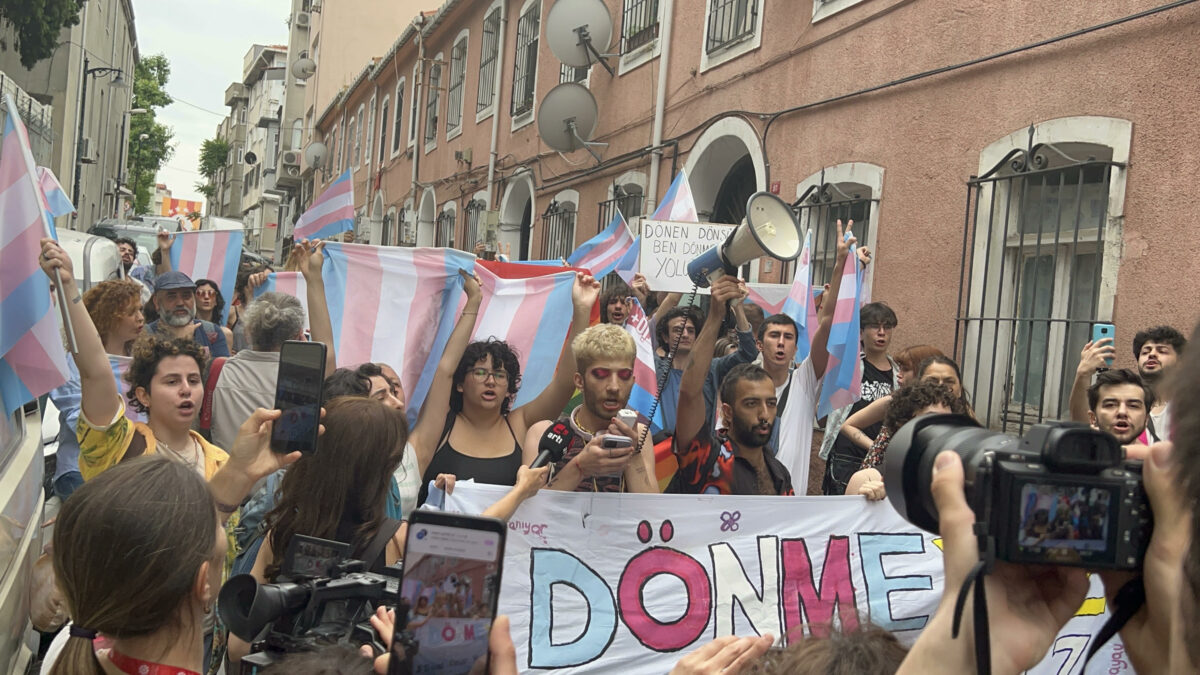
New changes from the Turkish authorities to the accessibility of hormones for trans people further threaten health and lives
On 20 November, the Turkish Medicines and Medical Devices Agency announced a new regulation that requires an e-prescription to access certain hormones used by trans people. The restrictions regulate access to hormones used mainly by trans masculine people as well as hormones used to treat diabetes. The two hormones under this new regulation used by trans women are also the same hormones used by cis women for birth control. This regulation therefore not only impacts trans people but also cis women and people with diabetes.
The new regulation exposes the pre-existing inadequacies in access of trans persons to healthcare services. While the regulation can be seen as an attempt to regularise the process of distribution and use of hormones, making the procurement and treatment safer for users, the Turkish healthcare system is extremely inaccessible for trans people, in particular as regards trans-specific healthcare. As a result, this new regulation will have severe consequences for trans people.
Currently in Turkey university research hospitals are the only hospitals that have specific gender transition councils which assess and provide a medical report for trans persons, which doctors then use to prescribe the necessary hormones. However, these hospitals are only available in 13 of the 81 provinces (usually those with major cities), resulting in those trans people living in rural areas having to travel to one of these 13 provinces. The journey time is usually long, and appointment availability is scarce, making such trips less affordable and accessible. For those who already live in major cities, it is still difficult to access the healthcare system as appointments are rarely available due to high demand – it can take several months to secure a first appointment. Subsequent appointments also have a similar waiting time. In total, it takes a minimum of six months to receive the necessary report for accessing hormone prescriptions. It is time and resource-intensive, and transphobia is often encountered along the way.
Hormones are a key part of trans-specific healthcare for many trans people – they impact not only physical traits but also frequently psychiatric health and wellbeing. For trans persons who have had their gonads removed, hormones are critical for good physical health, as stopping hormone therapy can lead to osteoporosis, among other things.
As a result, this new regulation will have severe negative consequences for the healthcare and mental health of trans people across Turkey, in particular trans masculine people and trans people in poverty. Many trans people will no longer be able to access these hormones, and some will even turn to unregulated pathways to procure them, which can result in health risks and exorbitant prices.
For such a prescription regulation to produce positive effects, the Turkish healthcare system needs to be restructured in such a way as to ensure that trans people can access healthcare in hospitals in all areas of the country. Trans-specific healthcare needs to be more widely provided and understood so that the current high demand can be met, with medical professionals ensuring the right to health of each patient, without discrimination.
More broadly, Turkey should uphold the case law of the European Court of Human Rights on legal gender recognition under Article 8. It should introduce a new legal framework that is quick, transparent and accessible with no requirements for invasive surgeries, and wide access to trans-specific healthcare. It should comply with the World Health Organisation’s 11th revision of the International Classification of Diseases which depathologises trans people in all areas of life.
Recent incidents of limitations on the right to freedom of assembly for LGBTI people in Turkey
On 20 November police blocked a demonstration to commemorate victims of transphobic violence in Ankara on the International Trans Day of Remembrance, and arrested four people, including a member of the Ankara Bar Assocation.
On 23 November police intervened in a demonstration by trans activists in Istanbul against the new e-prescription regulation, detaining 38 people. They were released after providing statements to the police.
On 25 November – The International Day for the Elimination of Violence Against Women – hundreds of people took to the streets in cities across the country, and were met with police repression in many cases. In particular, in Istanbul, the Governor’s Office banned all protests and demonstrations on the specified date, and police interventions resulted in 169 arrests. All of those arrested have since been released, apart from two LGBTI+ people from Azerbaijan, who were taken to repatriation centres. Due to the severe conditions and ill-treatment they were subjected to, including being deprived of food and medications, they were forced to “voluntarily return” to Azerbaijan. One of them was an LGBTI+ human rights defender from Azerbaijan who immigrated to Turkey due to being at risk of arrest in their country.
In Turkey LGBTI+ people are regularly subjected to arbitrary detention (often with excessive police force) and charged for participating in public events, or for holding rainbow flags in the public space. Public demonstrations are frequently banned or postponed under the pretext of “national security”, “public order”, “prevention of crime”, “protection of public health” or “public morals”, with police and governors excessive powers. These practices which include vague limitations on public assemblies allowing for arbitrary interpretation, breach Turkey’s own Constitution (Article 34) and the European Convention on Human Rights (Article 11) to which Turkey is party. Turkey should bring its practices in line with the ECHR and its own Constitution, halting arbitrary banning of protests and detention of participants.
The Turkish LGBTI+ community resists bans on Pride events again this year, amid increased repression from the Turkish government
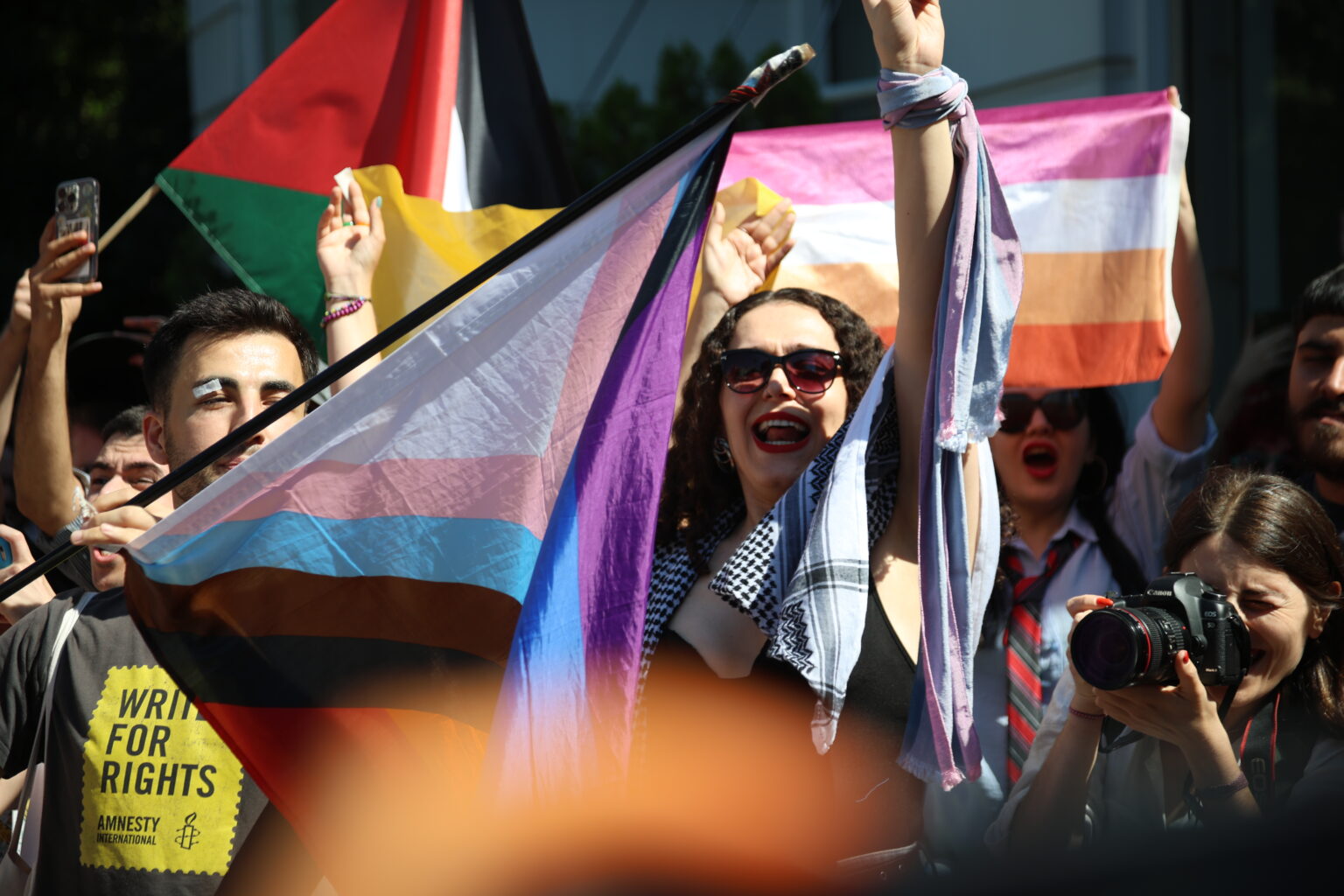
Amid increased repression from the government, the Turkish LGBTI+ community courageously and creatively resists bans on Pride events again this year
This year’s Pride season in Turkey saw continued bans on LGBTI+ themed events, as well as police repression, as the government continues to disregard the fundamental right to freedom of assembly and expression for LGBTI+ people. LGBTI+ activists across the country stepped up their tactics to avoid police repression, bans and arrests as much as possible.
METU, 31 May
On the METU student campus, Pride took place without intervention, as organisers moved the start time from 18:00 to noon.
Eskişehir, 9 June
Ten LGBTI+ activists were detained and subjected to torture. For the first time since 2015, four of the detained activists were referred to court with a demand for arrest. Later, all four of them were released.
Ankara, 12 June
The Ankara Pride committee, in response to police barricades and water cannons set up in many parts of the city, organised the march on another route. The police were therefore unable to intervene and no one was detained.
Trans Pride Istanbul, 23 June
The Istanbul governor’s office blocked metro stations in anticipation of Trans Pride, and hundreds of police officers were sent to the Beyoğlu, Şişli, and Beşiktaş districts, setting up checkpoints, barricades, and water cannons to blockade many roads. As a result, organisers decided not to hold a mass march; instead, they hung trans flags in different public locations. Two people were detained while sitting inside a café.
Izmir, 29 June
In İzmir the Pride march was held in Bornova one day before the official march was called to go ahead. This change in timing prevented any interventions.
Istanbul, 30 June
During Pride week in Istanbul, two events, one in Şişli and one in Kadıköy, were banned by district governors. The Istanbul Governorship issued a ban on Taksim and Istiklal Street in the early hours of the day of the Istanbul Pride march and described the Istanbul LGBTI+ Pride Week Committee as “various illegal groups”. The police were waiting at Taksim, Beyoğlu but the activists held the march instead at Bağdat Street of Kadıköy (on the Anatolian side) which was the first Istanbul Pride march on the Anatolian side of the city. Activists made a press statement and marched for approximately ten minutes before the police caught up and dispersed the crowd. Eleven people were arrested after the march ended, three of which were minors, who were handcuffed behind their backs in violation of the Child Protection Law. All were released after approximately eight hours.
Antalya, 1-15 July
All protests and events were banned by the governorship for 15 days, from 1-15 July, when Pride events were due to take place. The Pride march went ahead on July 14 and it was attacked by police, who arrested four participants.
Resilience and Creativity of Pride Organisers
It is clear that following the national elections of May 2023, and the municipal elections of March 2024, both marred by significant anti-LGBTI+ rhetoric, smear campaigns, and misinformation, institutionalisation of anti-LGBTI+ actions is on the rise. The international community must not be fooled by the reduction in arrests and violence during this year’s Pride season – much of this was avoided by the creativity and resilience of Pride organisers. Meanwhile hatred against LGBTI+ people from government and institutions is still coordinated and becoming more entrenched in policy.
Alarming developments in 2024
While Turkey continues to disregard its obligations under its own constitution and international treaties to which it is party to ensure the right of freedom of assembly and expression for all, it is also stepping up institutional targeting of the LGBTI+ community. Anti-LGBTI+ rhetoric by key political figures continues, related to more institutional contexts.
In June, the Minister of Family and Social Services Mahinur Göktaş presented the new 2024-2028 Action Plan for the Protection and Strengthening of the Family. This Action Plan contains measures to combat “deviant harmful ideology” of LGBTI+ people. The Minister stated that “Family structure is being destroyed by impositions carried out on a global scale” and President Erdogan added that “the imposition of LGBT has become a tool of tyranny, oppression and the corruption of society that even surpasses fascism”.
Misinformation is being institutionally supported, as one of the actions of the plan is that “documentary/program studies will be carried out on the negative effects of harmful trends and habits that threaten families on human nature and rights, family structure and society, especially on children, and existing broadcasts will be translated into Turkish.”
As has been seen with the government’s support to the Big Family Platform, LGBTI+ people are wrongfully framed as a “threat to the family”. The Speaker of the Grand National Assembly of Turkey, Numan Kurtulmuş, during his meeting with the Big Family Platform, an organisation organising anti-LGBTI+ hate rallies and calling for the closure of LGBTI+ organisations, targeted LGBTI+ individuals by referring to them as “deviant movements.”
The Ministry of Foreign Affairs is tasked under the Action Plan with creating connections with actors with similar agendas abroad, which implies further institutionalisation of the anti-gender movement.
The Presidency of Religious Affairs has also released its 2024-2028 Action Plan, which pledges over two million lira to fight against the LGBTI+ movement. The plan’s states that “homosexuality and its derivatives” are deviant and socio-cultural threats at the individual, family and societal level. Included in the actions, the General Directorate of Religious Publications is expected to prepare 40 publications similar to the “Family Magazine” until the end of 2028 “to protect the family against deviant ideologies that threaten the family”. “Family Magazine” is published by the Directorate General of Religious Publications and targets LGBTI+ people.
As we raise these alarming developments, we continue to call on international institutions to raise these issues in all relevant meetings with Turkish authorities, and for donors to further support Turkish LGBTI+ civil society in the face of the increased state-led repression.
Remarkable and resilient Prides across Europe
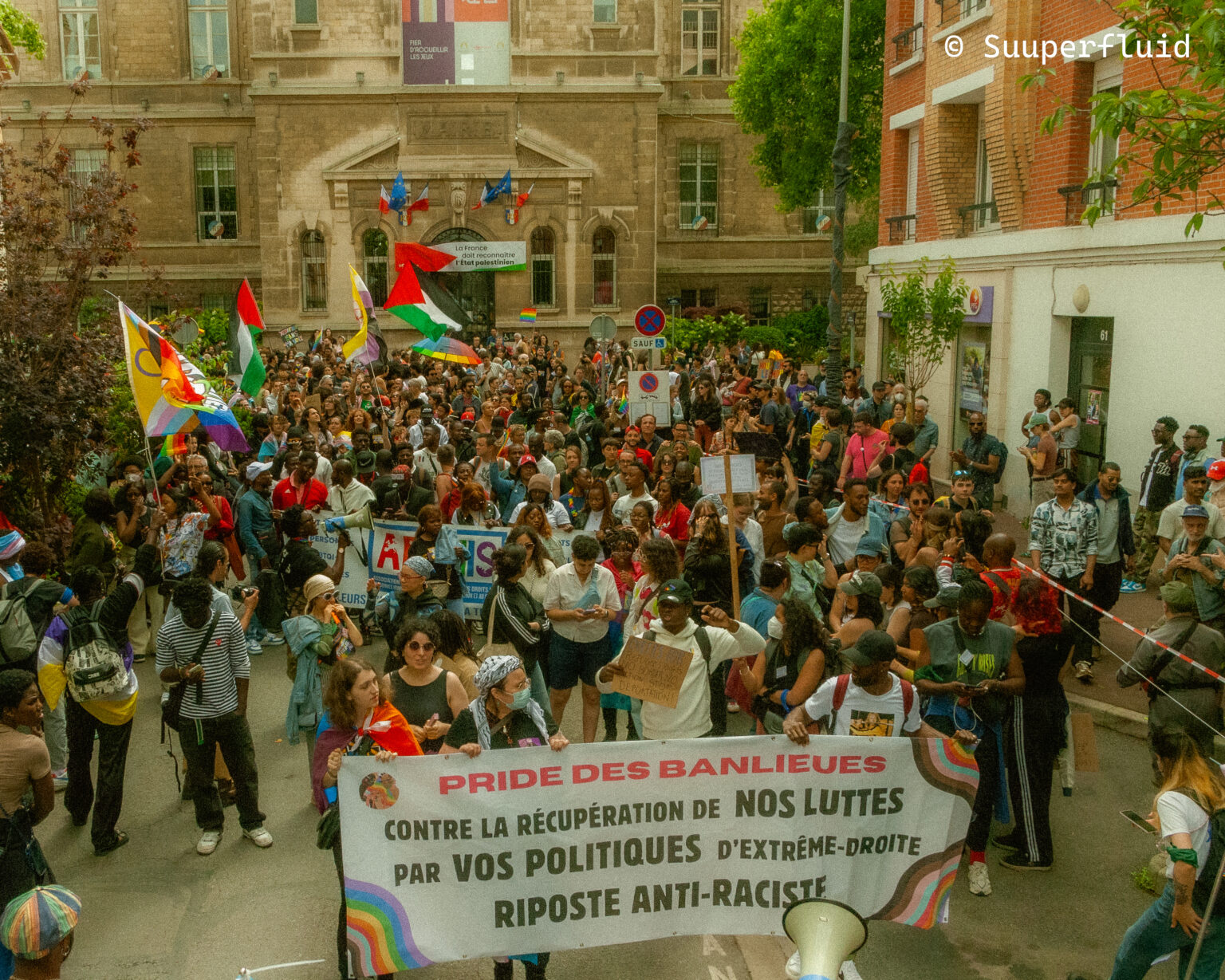
Amid political turmoil, war, social issues and cultural changes, Pride celebrations in Europe continue to demonstrate the resilience and determination of LGBTI communities
Today, on the eve of EuroPride in Thessaloniki, we are highlighting a number of significant Pride events on the continent, and one clear message shines through: LGBTI people are persisting in asserting their right to assemble and freely express themselves, thereby firmly establishing their presence in society. Pride events not only celebrate identity and diversity but also serve as critical platforms for political engagement. They amplify the voices of LGBTI people across Europe, who continue to push boundaries and demand their rightful place in society. Here are just a few of the thousands that have and will happen across Europe this year, in places where challenges are acute.
Kyiv Pride, Ukraine
Kyiv Pride 2024, on June 16, took place amidst challenging circumstances, reflecting the determination of Ukraine’s LGBTI community. Despite facing a cap on participation and heightened security measures, over 500 people marched through the streets of the capital to advocate for partnership recognition and protections against hate crimes. The event occurred against a backdrop of ongoing war, underscoring the urgent need for legislative reforms to safeguard LGBTI rights in Ukraine. Despite tensions and counter-protests, Kyiv Pride 2024 stood as a powerful assertion of the community’s right to freedom of assembly and expression.
“We took only a few steps, we made this painful compromise for the sake of safety and in order to revive the tradition and make a powerful and open Kyiv Pride March next year.” – Anna Sharygina, lead organiser of KyivPride.
La Pride des Banlieues (The Pride of the Suburbs), La Courneuve, France
La Pride des Banlieues happened in La Courneuve on June 22, representing LGBTI people from French working-class areas, many of whom are racialised. The group has been organising the Pride for several years in Saint-Denis. This year, however, the municipalities denied permission to march in Saint-Denis because of preparations for the Olympic Games in the city. Due to a last-minute relocation from its original venue and losing support from a municipality that had previously been an ally of past La Pride des Banlieues marches, the event took place in another suburb of Paris with less resources for security and less time to figure out new support infrastructure.
It was important that La Pride des Banlieues took place this year as the far-right opposition has been gaining more traction in France, getting more intense in their actions against LGBTI communities, with racialised LGBTI communities particularly facing multiple situations of discrimination and harassment. In their political message at La Pride des Banlieues, the organisers and their constituents condemned rising hate speech, discriminatory immigration policies, and institutional racism, aiming to resist far-right co-optation and mobilise solidarity against oppression of ethnic minorities and LGBTI communities in the suburbs.
“The fight against the far-right cannot be reduced to a universal fight, we must recognise the multiple and interconnected realities of oppression.” – La Pride des Banlieues organisers.
Trans Pride Istanbul, Turkey
Trans Pride Istanbul on Sunday June 23 was marked by decentralised actions across the city. Under the theme “Perpetrator State,” participants asserted trans visibility and existence, refusing to be silenced despite bans and oppression. Rather than a centralised march, activists mounted a number of smaller, unannounced activities like hanging trans flags, projecting messages across city landmarks and reading of a statement in front of Pride attendees. The event unfolded amidst stringent security measures, including metro station closures and a heavy police presence. Two people were detained and released after. This year’s Trans Pride Istanbul not only showcased solidarity and determination among Turkey’s trans community but also highlighted ongoing issues of discrimination and the fight for visibility and rights, echoing their message that the state is accountable for perpetuating violence and systemic injustices against trans people.
“We are trans people who are made the targets of violent and discriminatory policies at any chance given just because of our trans identities.” – Trans Pride Istanbul organisers
Looking Ahead
As we approach the end of June, two more significant events lie ahead this weekend.
Bucharest Pride, Romania
More than 25,000 people are expected to take to the streets of Bucharest on Saturday, June 29 to celebrate diversity and claim the rights of the LGBTI community at a crucial moment in Romania. Both presidential and general elections are approaching, and 20% of Romanian MEPs elected to the European Parliament were from the far right, with two of them using anti-LGBTI hate speech. Additionally, a new referendum regarding the definition of families is being pushed by the government opposition.
Pride in Bucharest will address the urgent need for legal recognition and protection of all same-sex families, continuing the push for the immediate implementation of the 2018 Coman case. In the case, the European Court of Justice affirmed residency rights in EU countries (that do not recognise same-sex unions) for the spouse of an EU citizen exercising their right to freedom of movement. Romania has yet to implement the verdict by granting Andrew Coman’s husband a residence permit, and a draft law has been adopted that would stop Romania from implementing it.
ILGA-Europe will be in Bucharest this coming October for their Annual Conference, working with local hosts ACCEPT and MozaiQ, recognizing this as a crucial moment for LGBTI human rights in Romania.
Istanbul Pride, Turkey
Istanbul Pride will take place on Sunday, June 30. Given the government and police response to Pride in the country over the past years, we will be closely monitoring what is happening. One thing we do know is that the LGBTI community in Istanbul and their allies will assert their human right to freedom of assembly and freedom of expression by attending Pride, with pride, resilience and courage. We will be reporting on Istanbul in this year’s instalment of our Turkey Pride monitoring blog over the coming weeks, as we learn from activists and organisers how officials are responding to Prides across the country. You can read our Turkey Pride monitoring blog from 2023 here.
EU Enlargement Review 2024
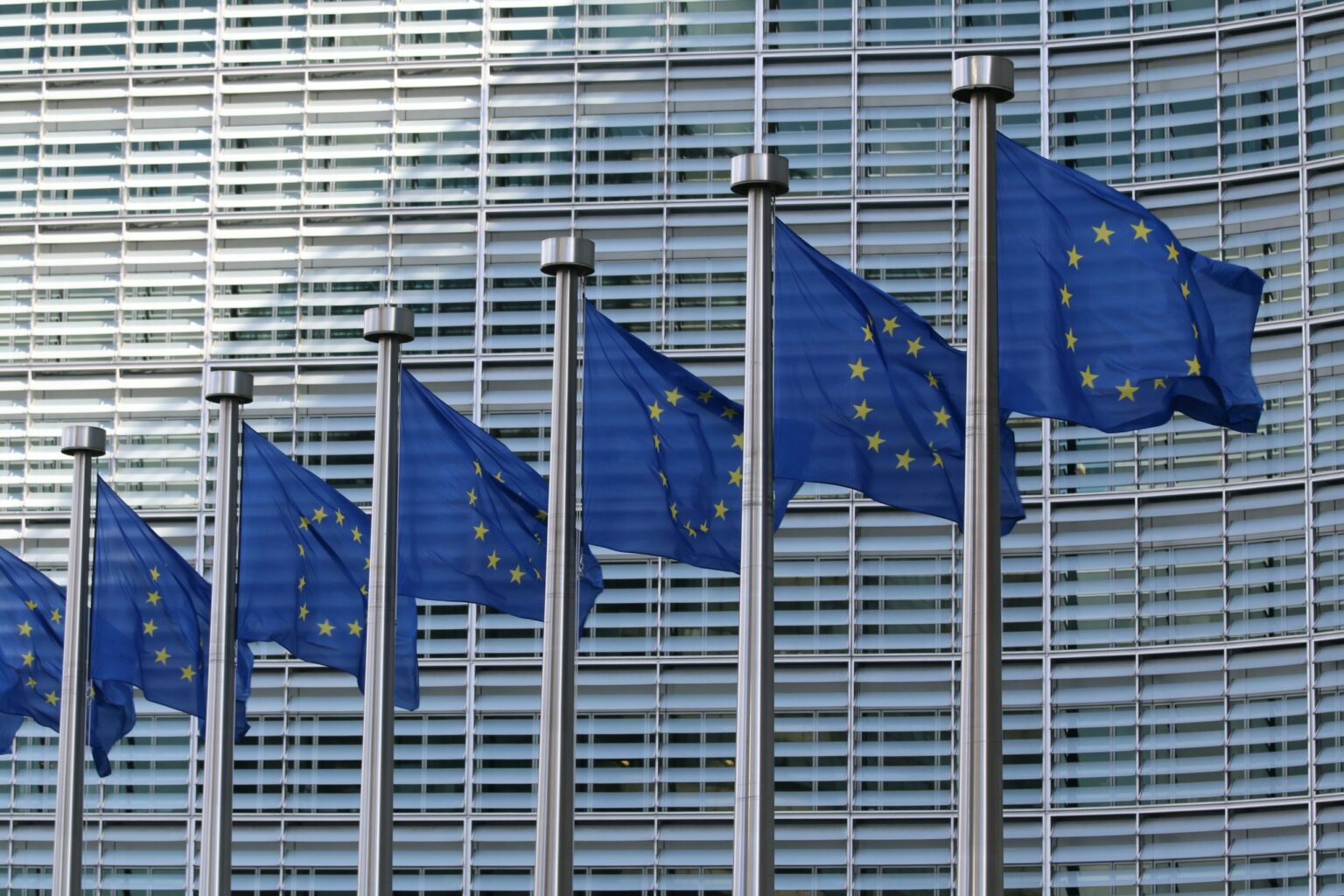
The fundamental rights of LGBTI people need to be a core part of the accession process and EU institutions need to work with the authorities in each accession country to ensure the gaps are tackled and important pieces of legislation are advanced over the next year.
The EU enlargement process has leverage and needs to be fully used to support the adoption of important legislation protecting the fundamental rights of LGBTI people, as well as call out when governments advance laws that go against EU principle of fundamental rights, democracy and rule of law.
Over the last year, not only have we seen the worrying trends of governments challenging the rule of law, an increase in LGBTI phobic hate speech by politicians and religious leader continuing and foreign influence being exerted to challenge advances on human rights continue, but in a number of candidate and accession countries, ruling parties have been pushing legislation forward that is actively limiting the human rights of vulnerable groups including LGBTI people. We have also seen governments putting forward Russian style foreign agent laws in Georgia and Republika Srpska in Bosnia- Herzegovina. LGBTI rights are being used to polarise society, often to distract from a broader undermining of democracy and the rule of law in these countries and other more important socio- economic and political issues.
The annual enlargement report process is a key moment to remind governments of the criteria that need to be met and point out where advancement on rule of law and the protection of fundamental rights are needed to advance the process. While in some countries progress has been too slow and the EU should ensure that important legislative processes are finally seen through (such as the legal gender recognition in Montenegro and partnership recognition for same-sex partners and a new hate crimes legislation in Ukraine), it is important to be very clear that the attempts to put forward laws that actively cancel EU fundamental rights cannot be tolerated and will need to lead to a reconsideration of the status granted by the EU.
It is especially important in this context that the EU insist that the protection of LGBTI people’s human rights are a core part, as they are often falling behind the requirements. The recommendations regarding the human rights of LGBTI people in the EU enlargement reports are key in holding governments accountable to the commitments made. This also means putting an emphasis on ensuring proper implementation of the laws protecting and granting access to fundamental rights. It is key that the EU makes this a priority in all the countries, also by supporting initiatives for training and education.
Through the region of all enlargement and candidate countries, we can clearly see how foreign forces are gaining influence and are challenging alliance with EU values and fundamental rights. The strength of disinformation and anti-LGBTI sentiment being spread across the Western Balkans region, particularly in Serbia, Bosnia and Herzegovina, Montenegro and North Macedonia, has intensified even more since Russia’s war in Ukraine, with LGBTI people and civil society as targets of smear campaigns, hatred and hostility, often originating from the government level, pro-Russia forces and religious leaders. We can see the anti-gender movement gaining more ground, spreading countless hostile and hateful statements and protests, disturbing public order and democratic processes. Politicians, religious leaders and newly formed organisations were among the most common perpetrators of hate speech, which translates into actual hate and violence against LGBTI people.
The anti-rights movement, which is well funded and coordinated, has taken root strongly in the Western Balkans region in the last years. In order to stand against this increasing influence of anti- gender forces and foreign governments trying to undermine the EU rule of law and democracy, strong civil society organisations are key as they continue to build social acceptance for fundamental rights, support vulnerable groups and are a corner stone of democratic societies.
The fact that LGBTI organisations in the Western Balkans have seen EU support decrease has further weakened their work and social cohesion in those countries. A number of LGBTI organisations had to close, and many at brink of closing, while they are facing organised attacks against their physical spaces, as well as against the legal framework which protects and guarantees their equal rights. The EU must be a supporting partner to these organisations, including their views meaningfully in consultations and negotiations, modelling civil dialogue as an important part of a democratic society, and continuing to support LGBTI organisations in the region through funding in the extremely fragile context.
Joint statement: Respect LGBTI+ rights in EU-Türkiye relations
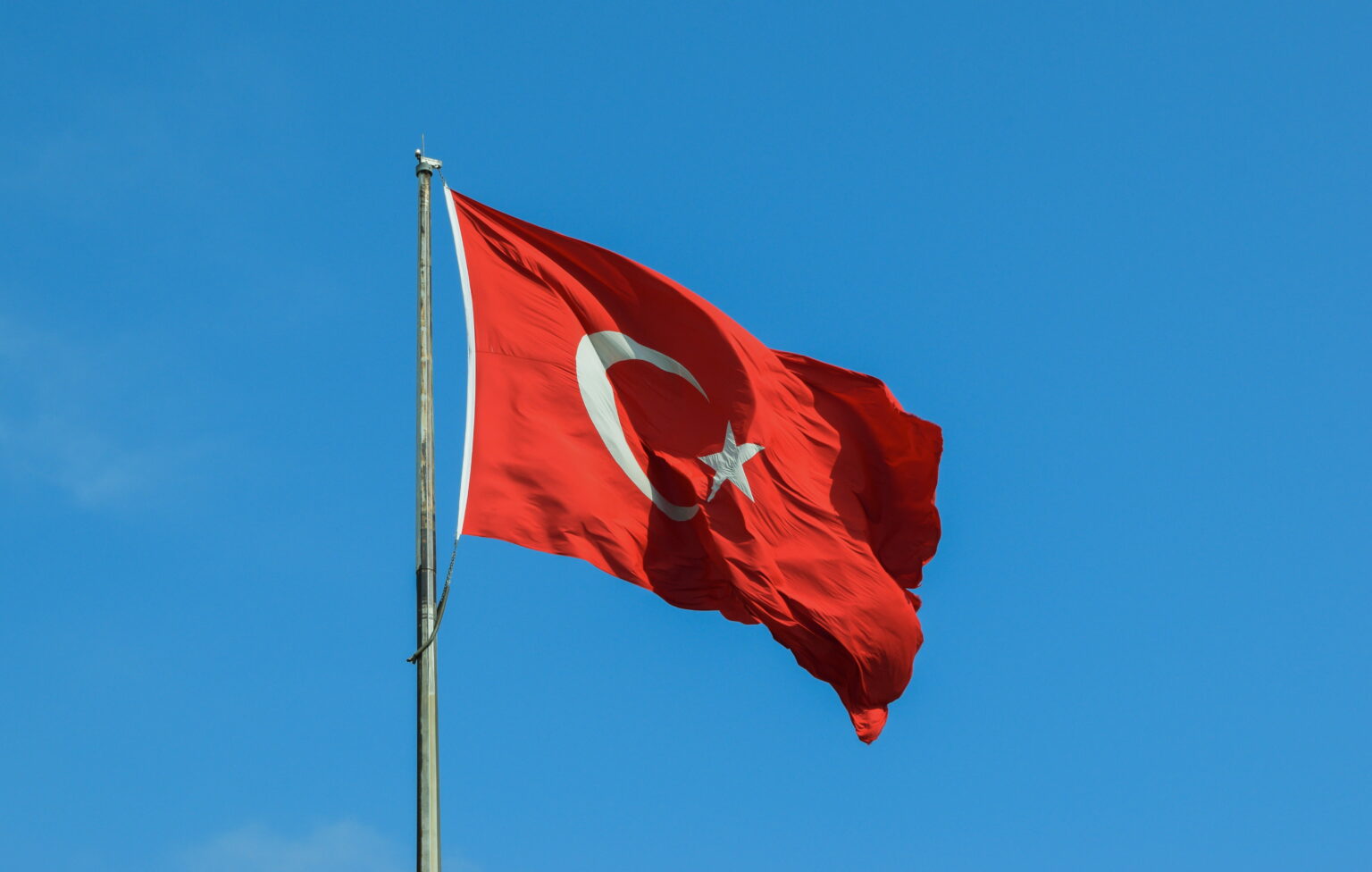
Today, alongside five other international human rights organisations, we demand that the EU takes specific steps to ensure respect for the human rights of LGBTI people in Turkey in future EU-Turkey relations.
The LGBTI+ community in Türkiye is increasingly the target of discrimination, intimidation and violence, said the European Commission in its 2023 Enlargement Package published last week. It also points out that the activities of LGBTI+ organisations continue to be unduly restricted, LGBTI+ people and human rights defenders continue to be targeted with legal sanctions for participating in Pride events, and LGBTI+ people continue to face hate speech, stigmatisation, and smear campaigns.
According to our assessment and that of LGBTI+ human rights defenders these trends will intensify in the coming months.
After the May 2023 elections, Türkiye has explicitly expressed its desire for the EU to revive its accession process. Beyond the enlargement framework, EU leaders are considering options for engaging with Türkiye in areas of mutual interest, with the High Representative of the European Union for Foreign Affairs and Security Policy and the European Commission preparing a report on the future of EU-Türkiye relations ahead of the 14-15 December European Council. Indeed, in recent weeks, EU officials have also signalled an intention to intensify dialogue and cooperation with Türkiye, including on issues such as visa facilitation, trade and investment, and migration.
In light of these developments, we remind the EU and Türkiye that respect for rule of law and human rights must remain at the core of EU-Türkiye relations, regardless of the framework in which they develop. The EU’s accession process is anchored in the respect for fundamental rights, including those of LGBTI+ people, and such respect remains a cornerstone in all areas of the EU’s external action. We therefore call on the EU institutions to ensure that all discussions on EU-Türkiye relations – including the upcoming report due to be presented at the December European Council – take into account the human rights concerns we have outlined below, and that all steps toward engaging with Türkiye are used to promote tangible human rights improvements in the country.
Hate speech against LGBTI+ people
Discrimination and hate speech which constitute incitement to hostility or violence against LGBTI+ people in Türkiye continued throughout 2023, often by high-level government officials, including the President. The run-up to the elections was marred by a high volume of anti-LGBTI+ statements from politicians, and smear campaigns against LGBTI+ people led by the ruling party. Since the election, pro-government media outlets have continued this alarming pattern of stigmatisation and discrimination.
In both September 2022 and 2023, the “Great Family Platform” organised anti-LGBTI+ marches in which some participants called for the banning of LGBTI+ organisations and events, and which led to commentaries justifying a call for the death penalty against LGBTI+ people. The promotional videos for the marches, in which LGBTI+ people were stigmatised, were approved by the Radio and Television Supreme Council (RTÜK) as public service advertisements. In 2022, the advertisement presented LGBTI+ people as a “virus,” and in 2023, the advertisement targeted so-called “LGBT propaganda.”
Türkiye is a party to many international treaties that prohibit discrimination, including on grounds of sexual orientation and gender identity. Among those most relevant to the violations described are the International Covenant on Civil and Political Rights (ICCPR), the United Nations Convention against Torture (CAT) and the European Convention on Human Rights (ECHR). The Turkish government has an obligation to protect everyone from discrimination, and should not be part of or show complacency towards any statements that could encourage discrimination and target a marginalized group, including LGBTI+ people.
We call on the EU to condemn discriminatory speech against LGBTI+ people and human rights defenders and to persist in urging Türkiye’s government and all its representatives to abstain from making statements that stigmatise and discriminate against LGBTI+ people, as such remarks put them at risk of harassment and violence. The EU should call for a prompt, impartial, thorough and effective investigation into any attacks and other forms of harassment against LGBTI+ people and for perpetrators to be brought to justice.
Freedom of peaceful assembly, in particular Pride events
This year’s Pride season in Türkiye began shortly after the legislative and presidential election, and spanned a number of weeks. A record number of Pride events were planned, despite blanket bans and the threat of police violence and detention of LGBTI+ human rights defenders.
LGBTI+ human rights defenders courageously defied political pressure and bans in order to claim their right to freedom of assembly and expression, but once again faced a number of fundamental rights violations. Across the country, LGBTI+ people and their allies were denied the right to exercise their rights to freedom of expression and peaceful assembly. The police used unnecessary and excessive force against protestors, and arbitrarily detained people participating in the events as well as bystanders.
Police intervened in at least 10 LGBTI+ rights related events and pride marches, detaining at least 224 people, including lawyers, journalists, human rights defenders, and foreign nationals. An opposition MP was also targeted and threatened with detention. At least 5 foreign nationals, including an Iranian LGBTI+ activist with international protection status, were held in removal centres for up to one month, facing deportation. The excessive use of force deployed during the police interventions violates the right to peaceful assembly, which is protected under domestic law and international treaties, including the European Convention on Human Rights.
In 2023, despite the continued anti-LGBTI+ rhetoric, bans and attacks on Pride marches, LGBTI+ human rights defenders continued their resistance with numerous successes, as many Pride events were organised, which once again underscores the strength and resilience of the LGBTI+ movement and people’s commitment to upholding fundamental rights and the rule of law in Türkiye.
However, 2023 was the ninth consecutive year since 2015 that LGBTI+ people have been subjected to blanket bans and restrictions on Pride events.
We call on the EU to demand Türkiye ends all arbitrary and disproportionate restrictions on the right to peaceful assembly, including the use of blanket bans, and protects participants of pride marches and other LGBTI+ events from any potential violence, as stipulated in Türkiye’s national legislation and international legal commitments.
New draft constitution
Earlier in 2023, the government proposed amendments to the Turkish Constitution on Article 41 on “protection of the family and the rights of the child.” The proposed amendment aimed to add to Article 41 that a “union of marriage can only be established between a woman and a man.” This definition of marriage explicitly discriminates against LGBTI+ people. Activists advocating for LGBTI+ rights are also concerned that such discriminatory amendments may pave the way for criminalising same-sex relationships and prohibiting LGBTI+ organisations from operating in the country.
We urge the EU to exert pressure on Türkiye to ensure that any revision of its Constitution includes a strong commitment to upholding the right to non-discrimination, in accordance with the various international treaties to which Türkiye is a party.
Amnesty International
Civil Rights Defenders
The International Federation for Human Rights (FIDH)
Human Rights Watch
ILGA-Europe – the European region of the International Lesbian, Gay, Bisexual, Trans and Intersex Association
World Organisation Against Torture (OMCT)
What we can learn from LGBTI activists against all odds
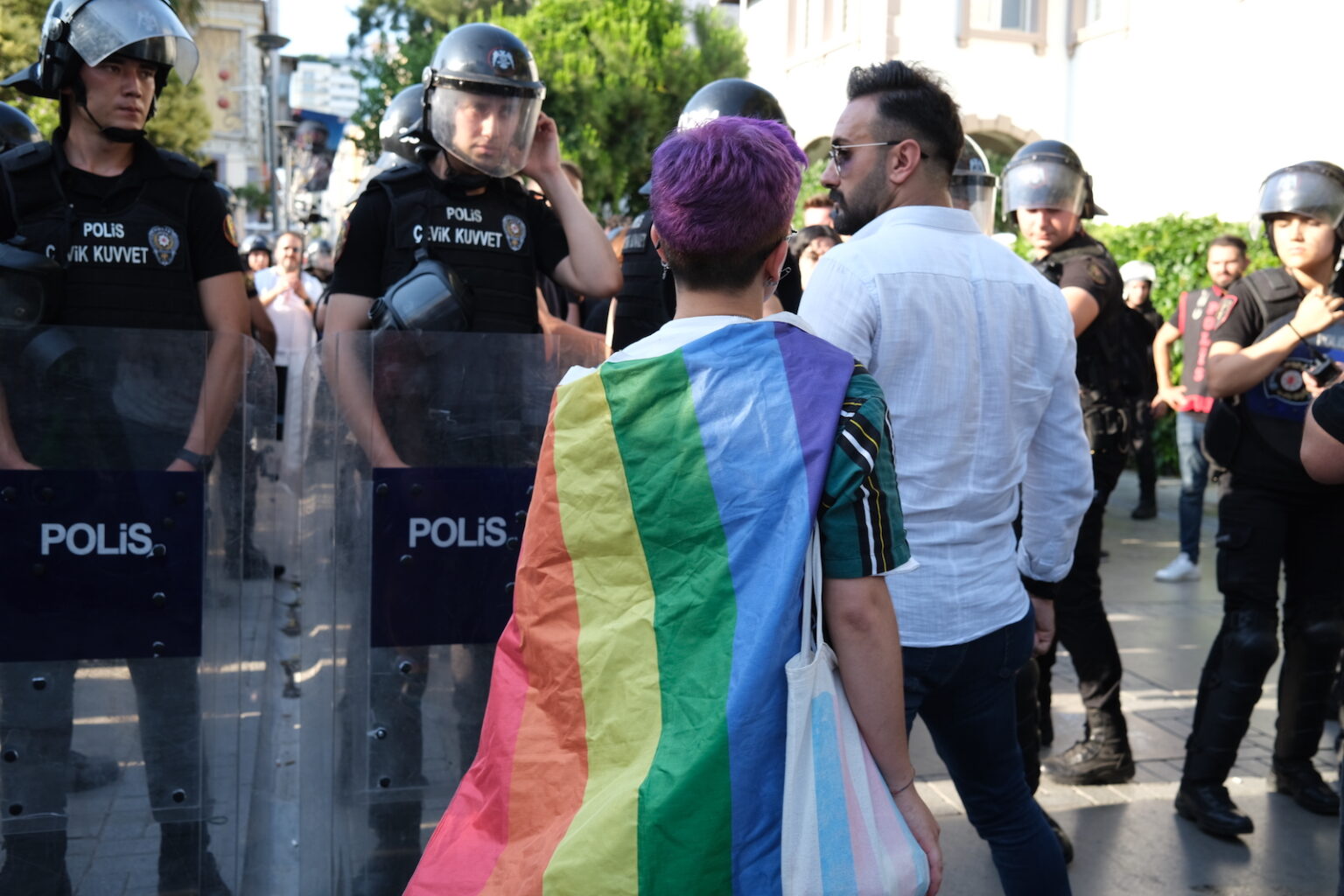
In countries where governments are pushing back on LGBTI people’s rights, joining Pride events is a courageous act that carries higher risks. However, it is in their invisible, everyday work where LGBTI activists showcase their most profound courage. The LGBTI movement in Turkey, as well as in Armenia and Azerbaijan, serve as remarkable examples of resilience against all odds. Keep reading to discover some key insights from our movement and find out more in our podcast.
“Take a moment and imagine yourself in this context,” begins Anastasia Smirnova, ILGA-Europe’s Programmes Director in a recent episode of The Frontline. “For eight years, you’ve been living amidst detentions, smear campaigns, cases against LGBTI activists, and violence that goes unpunished. Extremism and terrorism are terms often associated with the LGBTI movement. You vividly remember last year’s Pride events where hundreds were detained and subjected to police violence.”
This is not a fictional scenario but the daily reality of LGBTI activists in Turkey. Led by recently re-elected President Erdoğan, the Turkish government has intensified systematic attacks on LGBTI people since 2015, when the Istanbul Pride march was banned for the first time.
“So, would you show up at the Pride events in Turkey this year?” asks Anastasia.
“Not an imaginary you – not the bravest and most courageous version of you living in a vacuum. But the real you, with your life circumstances, responsibilities, and current challenges. What would inspire and empower you to show up, ready to face violence and knowing that detentions are possible?”
LGBTI activists in Turkey, and in countries where the government actively opposes LGBTI rights and existence, face potential repercussions, including in their personal lives. But instead of being discouraged by Erdogan’s hostility exhibited during the elections and the previous nine years in office, LGBTI activists in Turkey have organised a record number of Pride events over the spring and summer.
Despite all the risks and knowing that 500 people were detained during Pride season in 2022, they continue to show up.
“It is hard to imagine a stronger and clearer display of strength, solidarity, and resilience than LGBTI people and allies in Turkey taking to the streets, participating in the broader political context, and using their voices despite years of political intimidation,” says Anastasia.
Activism beyond Pride events
They do this not only during Pride season but every day. “For this to be possible, massive invisible work has to happen daily.” This work, unlike Pride events, will not make headlines. Yet, this is the work that enables people to continue showing up and grow their strength in numbers.
Prides and public protests are not the only signs of a strong movement. Referring to the countries at the bottom of our Rainbow Map ranking, where freedom of assembly is severely restricted, “people’s power manifests very differently, and often not on the surface,” explains Anastasia
Examples are offering expertise pro bono, contributing money, helping build connections with businesses, other civil society organisations, the media, among professionals or in educational, cultural, or healthcare spaces.
“It is people doing what they can in their immediate environment to improve the situation of LGBTI people, creating an alternative layer in society that counters state-sponsored anti-LGBTI ideologies,” says Anastasia.
What Turkey, Armenia and Azerbaijan teach us
The three countries at the bottom of the Rainbow Europe scale in 2023 are Azerbaijan, Turkey, and Armenia, the same as the last three years. Yet, the LGBTI movement in these countries offers valuable lessons for all LGBTI groups across the board.
“Over the last 15 years, we’ve seen not only how countries can advance but also how human rights and freedoms are attacked,” says Mehmet Akin, Senior Communications Officer with ILGA-Europe.
When anti-democratic representatives instrumentalise LGBTI people for their own political gain, the freedoms of LGBTI people are gradually taken away. Countries at the top of our ranking are not immune to these anti-democratic forces, who are increasing their presence across the region.
“This is a wake-up call from countries at the bottom of the ranking to those at the top, as LGBTI rights are one of their primary targets,” says Mehmet.
Despite all hardships, LGBTI movements in Russia or Turkey, but also in the EU, as in Poland or Hungary, have developed effective strategies for advocacy, community building, and exercising their freedom of assembly and expression.
“I think activists at the top of our list can learn from the countries at the bottom in terms of the experience they’ve already gained in continuing their work despite legal regression and societal repression,” concludes Mehmet.
Listen to the complete episode and learn more about the strength of the movement against all odds here and to all episodes about our Rainbow Map here.
Photo credits: Murat Kocabaş / Kaos GL
How attacks on Pride are jeopardising Turkey’s hopes for accession to the EU
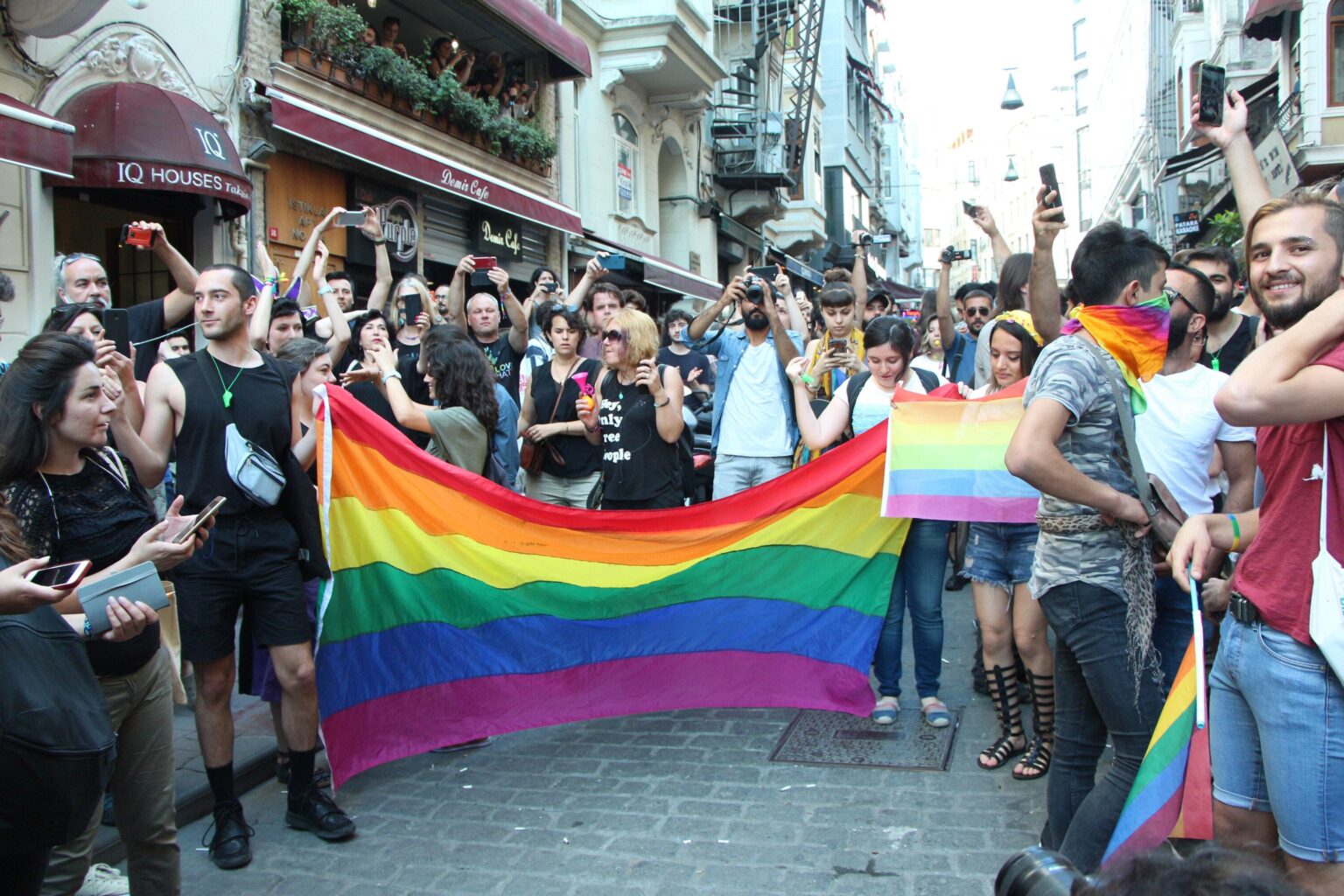
After the detention of 241 individuals at 11 Pride events this summer, the Turkish government must understand that respecting the rule of law and fundamental rights, including those of LGBTI people, is a precondition for becoming an EU member state.
EU accession has once again taken centre stage on Turkey’s political agenda. Since his re-election in May 2023, President Erdoğan has reignited EU accession conversations, stagnant for several years. However, amid this renewed pursuit, the attacks on Pride events and potential regressive changes to the constitution underscore the precarious state of human rights in Turkey. Upholding the fundamental rights of all, including LGBTI people, and ensuring the rule of law remain the cornerstones of the EU. Any future discussions regarding closer ties with the EU must hinge on Turkey’s unwavering commitment to safeguarding these principles.
Erdoğan’s crackdown on Pride
Following the presidential election, marred by a high volume of anti-LGBTI statements, the Pride season in Turkey bore witness to both immense courage and hatered stoked by the state. A record number of Pride events were planned this year, and while some took place without obstruction, many encountered police repression and bans.
Authorities violently interrupted 11 LGBTI-themed events and Pride marches, leading to the detention of 241 people, including four children, seven lawyers, five foreigners, journalists, and activists. Particularly shocking was the case of Iranian LGBTI+ activist Elyas Torabibaeskendari, held in a detention centre despite his international protection status and at risk of deportation to his home country, where he could face a death sentence.
Portuguese national Miguel Alvaro, who was on holiday in Turkey during the event, alleges that he was assaulted by police officers due to his assumed appearance as gay, leading to his 20-day detention without explanation. Protestors also reported incidents of reverse handcuffing, manhandling, and prolonged confinement in vehicles without proper ventilation.
According to human rights activists, the use of torture and ill-treatment by the police was more widespread compared to previous years. It is crucial to remember that the excessive use of force by the police violates the right to peaceful assembly, protected under both domestic law and international treaties, such as the European Convention on Human Rights, to which Turkey is a signatory. Despite the pressure, LGBTI activists displayed resilience, with many Pride events going ahead peacefully, exemplifying the strength and determination of the LGBTI movement in Turkey.
Constitutional amendments: A stride backwards in LGBTI equality
Earlier this year, the Turkish Parliament expanded the threat to LGBTI citizen’s rights. Among various draft amendments to the Constitution, one stood out as direct discrimination against LGBTI people. Under the guise of protecting the institution of the family “against the impositions of pervert movements,” the legislature sought to redefine marriage as “the union of a man and a woman,” essentially eliminating the possibility of introducing same-sex marriage in the country. While the proposal was eventually withdrawn in the aftermath of Turkey’s devastating earthquake and later elections, this amendment, incompatible with the principle of non-discrimination enshrined in the EU treaties and the Charter of Fundamental Rights, is anticipated to re-emerge in the upcoming legislative term.
LGBTI people’s rights are at the core of the EU
Amidst the curtailment of LGBTI freedoms and deeply concerning legislative proposals, the journey to Turkey’s EU accession demands a resolute commitment from all sides to protect the fundamental rights of LGBTI people. LGBTI people’s rights are not negotiable and Turkey’s road to becoming a member of the EU must be based on the Union’s founding values.
The Frontline: Behind The Rainbow Map: Activism in the Lowest Ranking Countries
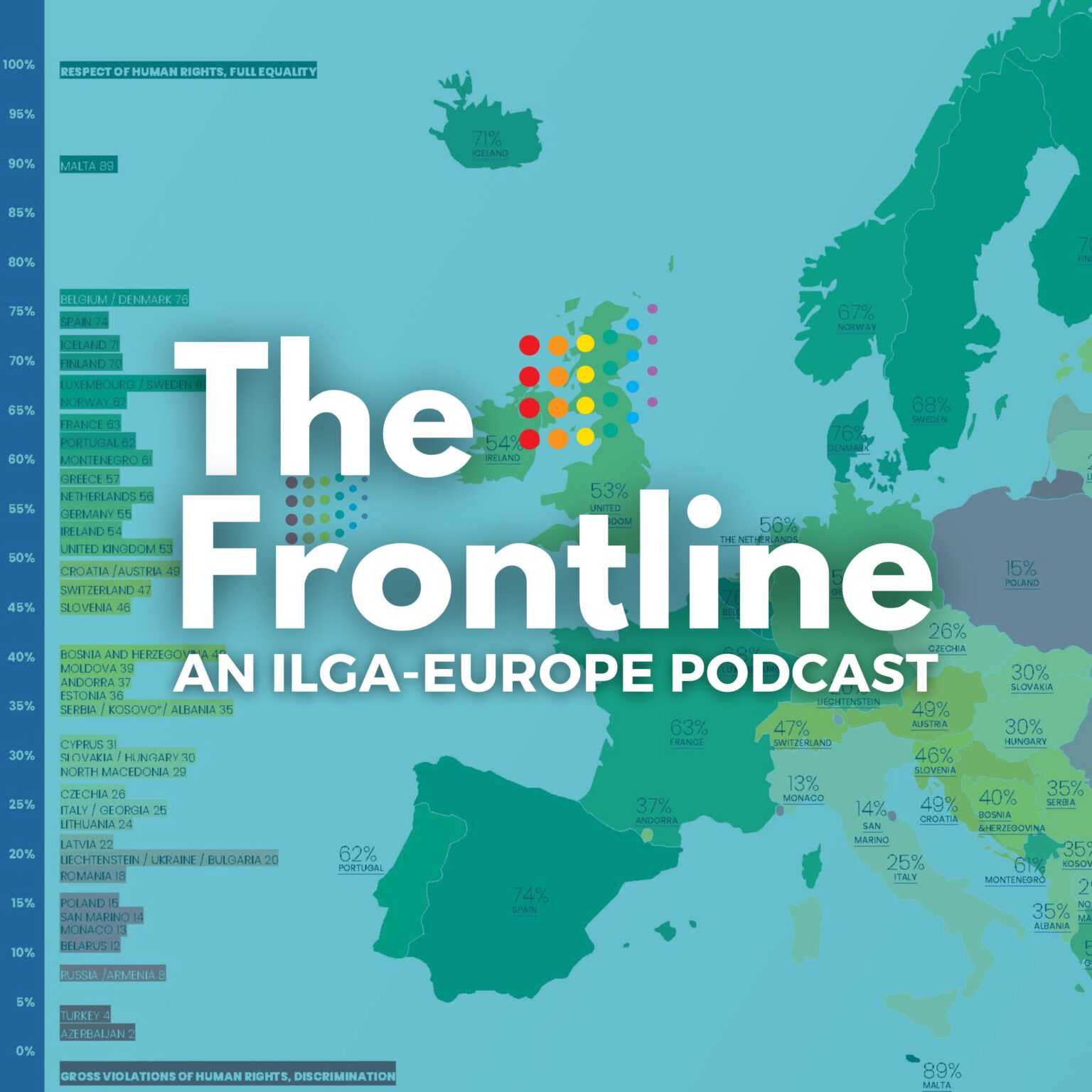
Every year since 2009, ILGA-Europe’s Rainbow Map has been ranking the 49 countries that make up Europe based on the legal and policy situations of LGBTI people.
While during this time there has been much movement at the top of the map, with Spain, Finland, Greece and Moldova making big jumps this year, the countries at the bottom have largely been the same since the very first map, namely Russia, Armenia, Turkey, and at the very bottom Azerbaijan.
In this episode of our podcast, The Frontline, we ask the question, if a country stays at the bottom of the Rainbow Map ranking, does it mean there’s no queer activism happening there? In countries where advocacy is not possible, and where daily life for LGBTI people is often extremely challenging, what’s happening in the work towards LGBTI rights and equality? And is this mostly invisible activism bringing about change for LGBTI people in the countries where it seems life is getting worse rather than better?
Monitoring Pride in Turkey 2023
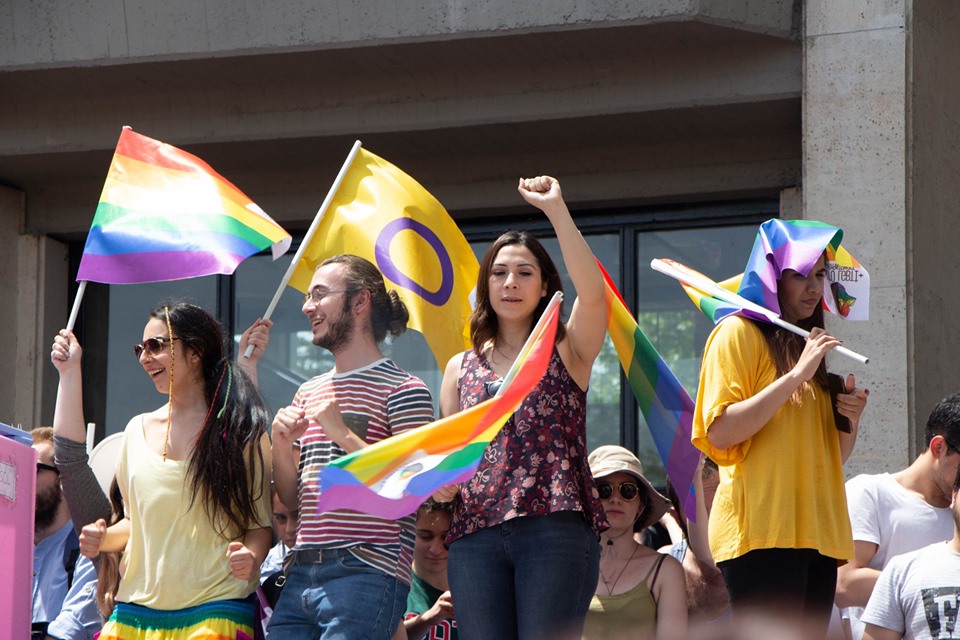
A month after the Turkish elections, for which the winner,Recep Tayyip Erdoğan scapegoated LGBTI people, activists and allies have been rallying at Pride marches across the country. In this blog, we present an up-to-date account of the latest events, as reported by LGBTI activists on the ground in Turkey.
LGBTI activists in Turkey are determined to stand up for human rights. The government, led by President Erdoğan, has been intensifying its systematic attacks on LGBTI individuals since 2015, when Istanbul Pride march was banned for the first time. A month after the re-election of Erdoğan on a ticket that instrumentalised LGBTI people as an enemy, it is Pride season once more in Turkey.
Hate speech, prohibitions, and systematic attacks by Turkish authorities on Pride events have been ongoing ever since that first ban. In 2019, 19 activists were charged with unlawful assembly for participating in a peaceful Pride March at METU University. After a trial that was delayed several times, the METU 19 were eventually acquitted in 2021.
Following his re-election as President of Turkey for another five years, Erdoğan again directed his hostility towards the LGBTI community, targeting LGBTI+ people throughout his campaign and the previous nine years in office. During the election campaign, the ruling bloc expanded its coalition with the New Welfare Party and HÜDAPAR, which are known for their anti-LGBTI+ stance and the ruling party signed a protocol with the New Welfare Party which has been demanding the closure of LGBTI+ associations.
Instead of being discouraged by these daunting events, or the fear of increased pressure from the government, LGBTI activists are working harder than ever to ensure their right to assemble and to be seen. As risks and repression grow, activists on the ground are closely monitoring this Pride season. We will continue to develop this list as news comes in.
Saturday, June 2 – Bilkent University Pride, Ankara: No intervention or arrests occurred.
Friday, June 9 – METU Pride, Ankara: Police intervened and made 15 arrests, but all were released by 03:00.
Sunday, June 12 – Sabancı University of Istanbul: Peaceful event with no arrests or police intervention.
Sunday, June 12 – Cins Klüp: The LGBTI+ student community at Sabancı University, one of the most prestigious universities in Turkey, organised a Pride march on campus despite attempts by the private security unit to prevent it.
June 16-18 – Aydın LGBTI+ Pride Week: No march, only events were held.
Sunday, June 18 – Adana Colors of Resistance organised an event for trans visibility day called “Trans visibility in the struggle of LGBTI+ rights”.
Sunday, June 18 – Trans Pride Istanbul: The newly appointed Istanbul Governor, Davut Gül, had previously targeted Trans Pride and the LGBTI+ Pride March, issuing a threatening message on Twitter with an emphasis on “family”. Although no official ban was issued by the Governorate, the police blocked the Taksim area with barricades on Sunday morning. The police attacked those gathered in the Harbiye district of Beyoğlu and also targeted press workers who were documenting the events. Despite these challenges, activists delivered their press statement and marched for the 9th Trans Pride.
Sunday, June 25 – Istanbul Pride: The march took place without police intervention, but the police intervened after the march had concluded and the number of detainees has reached 64, including foreign nationals in danger of deportation. Relevant UN agencies, LGBTI+ and refugee organizations are following the process.
Sunday, June 25 – Izmir Pride: A ban was announced the night before the march. There was violent police intervention, resulting in the detention of approximately 50 individuals. Protesters were handcuffed behind their backs, manhandled, and kept in detention cars without fresh air for an extended period.
On Sunday 9 July – Eskişehir Pride: Police blockaded the Hasan Polatkan Cultural Center, where the march was to take place. Stating that the Governorate of Eskişehir had issued a ban on 14 June, the police announced that they would not allow the march to go ahead. Those who had gathered for the march asked for time to disperse. The police intervened harshly and detained 18 people, two of whom are lawyers. The detainees were released on the same day.
3-9 July – Adana for LGBTI+ Pride Week: The police intervened during a press statement organised for Pride Week. 18 people, including HDP Provincial Co-Chair, Helin Kaya, were beaten and detained. Green Left Party Mersin MP Perihan Koca was beaten and reverse handcuffed. The detainees were released by midnight.
It is not just Pride marches that face repression and obstruction. LGBTI-themed gatherings and events are also facing similar treatment.
In June, the second Aegean Pride Picnic, organised by LGBTI students at Ege University in Izmir, received open threats from Turkish Youth Union (TGB), the youth branch of the Patriotic Party, Grand Family Platform (Büyük Aile Platformu), TÜGVA and the New Welfare Party and was eventually postponed after the police stated that they could not ensure the safety of LGBTI+ students. When the organisers attempted to read a public statement in front of the Izmir Bar Association, a professional organisation of lawyers defending human rights, the police attacked activists and assaulted lawyers. Despite these challenges, the activists managed to read their statement.
The Pride Picnic of Direnişin Renkleri (The Colors of Resistance), a local student initiative at Izmir Democracy University, had planned their own Pride Picnic on June 13. However, hours before the event, the police initiated a blockade both on the university campus and in the picnic area. The police threatened LGBTI+ students and detained two students by beating them. The detained students were taken to Balçova Police Headquarters but were later released after providing their statements.
On June 14, the Patriotic Party and its youth branch, Turkish Youth Union (TGB), targeted an LGBTI+ Pride Month event scheduled to take place at the Ankara Bar Association. A group of ten people gathered before a gender equality panel and insulted those attending. The police did not intervene, and the event proceeded despite the provocation.
On June 15, the Eskişehir Governorate banned all kinds of LGBTI+ themed public events across the city for a month, citing “public morality”.
Also on June 15, the ‘Tea & Talk’ event for English speakers in Istanbul, organised by Lambda Istanbul, one of the oldest LGBTI+ associations in Türkiye and held in various café’s for years, was banned by the Kadıköy District Governorate. The ban was communicated to the café where the event was supposed to take place. According to the Kadıköy District Governorate, it is “inappropriate” for LGBTI+ individuals to sit in a café, drink tea and engage in conversation.
The concerts of singers Melike Şahin and Mabel Matiz in Bursa and Denizli, respectively, were cancelled due to their LGBTI+ supportive award speeches and celebration pride at the stage at the Elle Style Awards. Denizli’s municipality cancelled Mabel Matiz’s concert without providing any reason. Melike Şahin is known for her support to LGBTI+ movement while Mabel Matiz is an openly queer singer.
As a human rights organisation, ILGA-Europe are deeply concerned about the ongoing challenges faced by LGBTI activists and the repression of LGBTI events in Turkey.
During a recent study visit organised by ILGA-Europe, activists discussed the protection of LGBTI rights in Turkey at different EU institutions. We will continue to follow Prides in Turkey in close contact with activists and to mobilise international support to ensure the freedom of assembly and all human rights of LGBTI people in the country.
EU Enlargement Review 2023
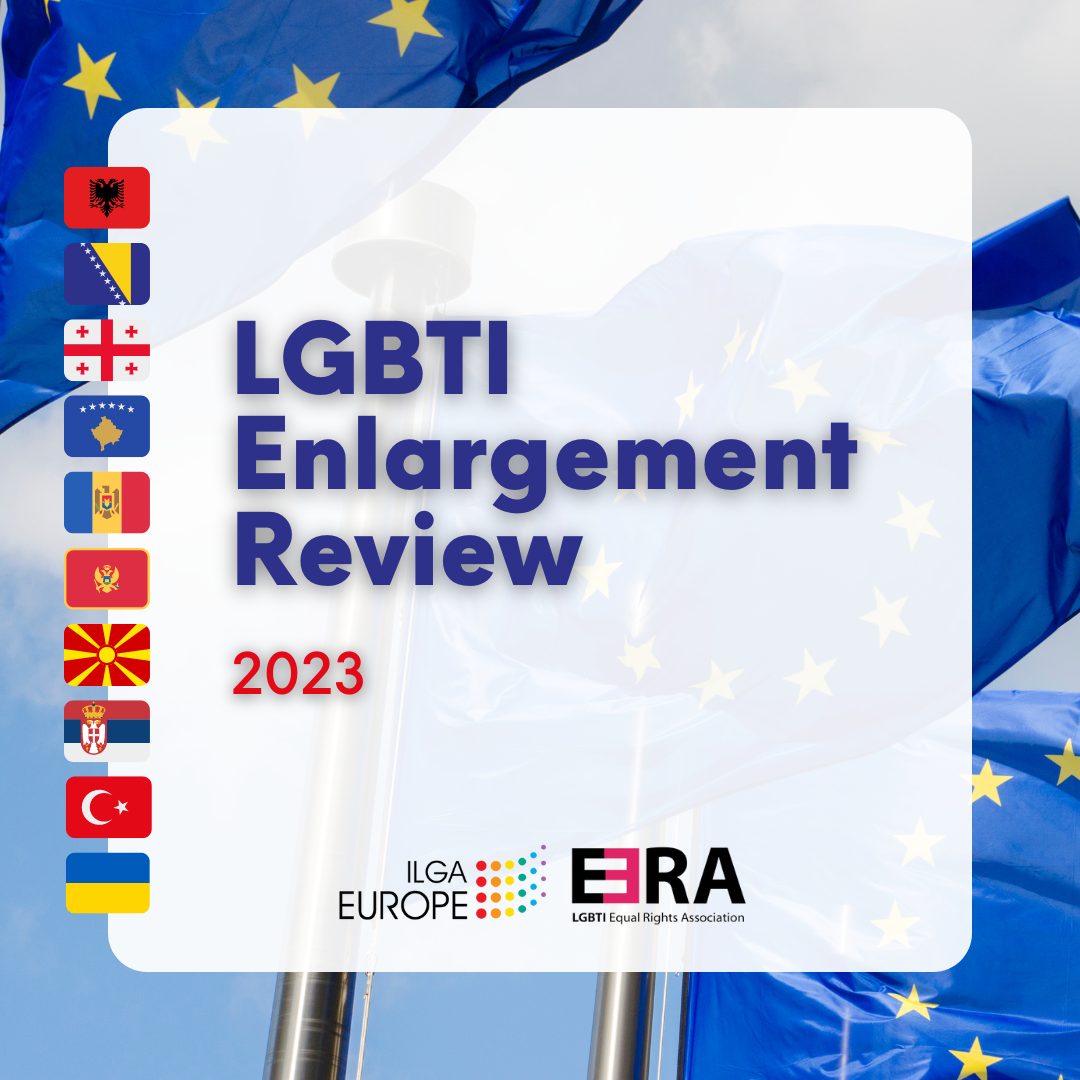
ILGA-Europe has worked with ERA – LGBTI Rights Association for the Western Balkans and Turkey, to produce our annual LGBTI Enlargement Review, assessing gaps in legislation and policy for the protection and advancement of the human rights of LGBTI people in the enlargement countries, and identifying priorities the EU should insist authorities in each country need to tackle in the coming year, as identified by LGBTI activists in the respective countries.
2022 was an historic year for the enlargement process, as the EU expanded its promise of a perspective for EU accession to include Ukraine, Moldova and Georgia, following the beginning of Russia’s war in Ukraine on 24 February 2022. All three countries are now included in the EU’s annual enlargement reporting process. As ILGA-Europe has member organisations in all of the newly added countries, this year’s LGBTI Enlargement Review covers the perspectives of LGBTI civil society from all ten countries: Albania, Bosnia & Herzegovina, Georgia, Kosovo, Moldova, Montenegro, North Macedonia, Serbia, Turkey and Ukraine.
This year’s LGBTI Enlargement Review also follows a new format. We wanted to particularly highlight the importance of implementation of already existing policy and legislation, as it has become commonplace for Enlargement countries to adopt a legal framework aligning with EU standards, but not actually implementing it. As a result, each country chapter is divided into the below headings:
- Main legislation/policy to be drafted/adopted to ensure non-discrimination and access to justice for LGBTI people (priorities for the coming year)
- Implementation of already-existing legislation/policy
- Legislation/policy in process
- Feedback on the European Commission’s 2022 Enlargement Report (where applicable)
- Recommendations to the EU
These headings are then complemented by a section linking readers to the respective country chapter of ILGA-Europe’s Annual Review 2023, in order to understand the reality on the ground and more nuanced context, which often varies significantly from legislative frameworks. The chapter on Turkey is structured in a different way, in order to present the current state of play prior to the elections in May, and will be updated to reflect the priorities that emerge after the elections.
In all of the enlargement countries, we can unfortunately identify a clear trend of rule of law being challenged, foreign influence being exerted to challenge advances on human rights, including the rights of LGBTI people, and an increase of hate speech translating into violence on the ground, as well as ongoing challenges to freedom of assembly and association.
In this context, LGBTI topics are being used to polarise society, often to distract from a broader undermining of democracy and the rule of law in these countries and other more important socio-economic and political issues.
It is thus important that the EU renews a clear prospect for EU enlargement, not only for Ukraine, Moldova and Georgia, but most importantly in the Western Balkans. The commencement of accession talks with Albania and North Macedonia is an encouraging step in this regard. It is important that the EU places LGBTI rights firmly into all its considerations, and that demands on advancing the protection of the human rights of LGBTI people are put on the same footing as important processes on fighting corruption and advancing the rule of law.
EU Enlargement Countries Called on to Urgently Ensure Protection of the Human Rights of LGBTI People

Published today, ILGA-Europe’s Annual Enlargement Review urgently calls on all EU enlargement countries to properly implement their anti-discrimination, hate crime and hate speech legal frameworks, in the context of rising anti-gender, anti-rights and far-right groups.
ILGA-Europe and the LGBTI Equal Rights Association for Western Balkans and Turkey (ERA), have published their annual Enlargement Review, which outlines the developments in recognising and respecting the human rights of LGBTI people in each enlargement country (Albania, Bosnia and Herzegovina, Kosovo, Montenegro, North Macedonia, Serbia and Turkey) from January to December 2021.
The annual LGBTI Enlargement Review acts as an LGBTI submission to the Enlargement Progress Reports of the European Commission. These reports are a detailed annual assessment of the state of play in each candidate country and potential candidate country, outlining what has been achieved over the last year and what remains to be achieved.
This year’s Enlargement Review is published in the context of rising Euroscepticism in the enlargement countries, as well as a significant rise of anti-gender, anti-rights and far-right groups across the region. Misinformation and discriminatory speech against LGBTI people has been spread in public discourse via national broadcasting and political processes, leading to the prevention of the development of laws and policies inclusive of LGBTI people. As a result, despite some welcome significant advancements in the preparation and drafting of legislation to protect the human rights of LGBTI people this year, much of this legislation is currently stalled.
The Annual Enlargement Review recognises that the EU accession process has been a strong driving force for change in the recognition of the human rights of LGBTI people in the region, and it encourages this continued commitment by outlining the laws and policies that are still needed to ensure full and genuine protection of the human rights of LGBTI people, and by providing recommendations to each country’s authorities and to the European Union.
At ILGA-Europe, we hope to see the current legislative gaps closed, in particular regarding family rights, legal gender recognition based on self-determination, and the protection of intersex people’s human rights. With the rise in anti-gender, anti-rights and far-right groups, we renew with increased urgency our call on all countries to properly implement their anti-discrimination, hate crime and hate speech legal frameworks.
Further information:
Each country’s submission is arranged under the following headings. In cases where organisations have no updates to share, the respective heading has been left out. Each thematic heading also contains recommendations for the national authorities.
- Summary of key developments
- Main action points for the coming year
- Bias motivated violence, hate speech, hate crimes
- Education
- Employment
- Equality and non-discrimination, including legislation and enforcement
- Freedom of assembly, association and expression
- Health
- Human rights defenders
- Public opinion and attitudes
- Recognised unions for same-sex couples
- Rights and equal treatment of trans people
- Rights and equal treatment of intersex people
- A supportive and enabling environment for civil society
- Recommendations on how the EU delegation/European Commission can support LGBTI CSOs
ILGA-Europe’s submission to Progress Reports of the European Commission 2021
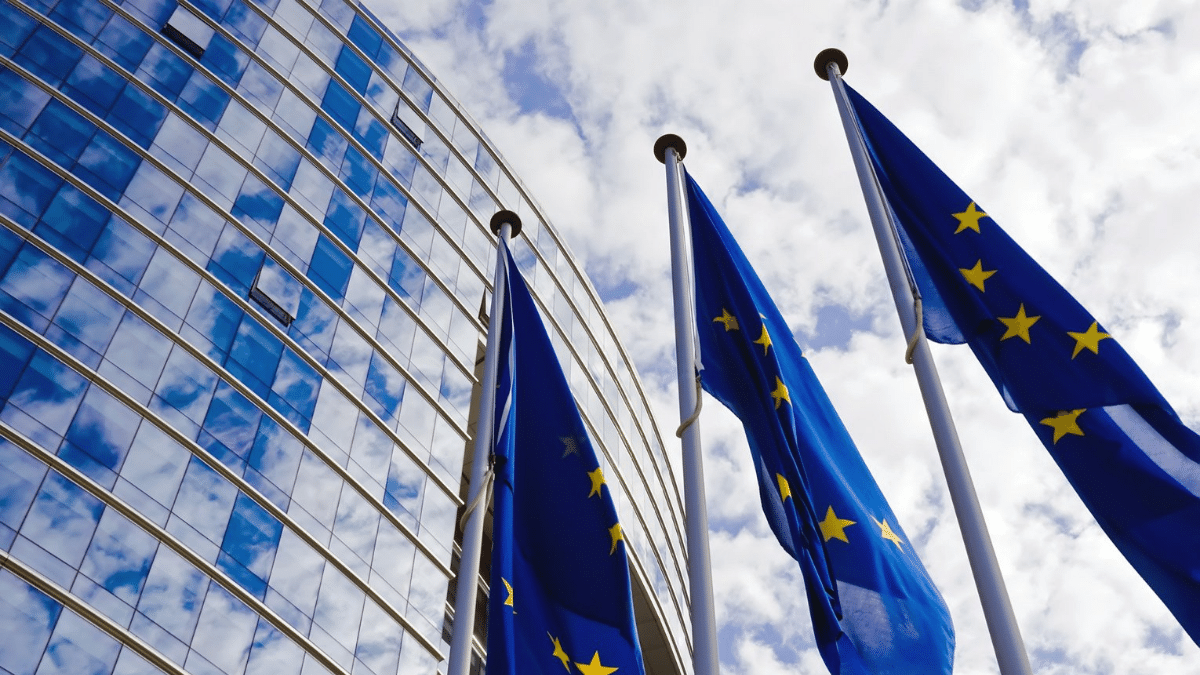
LGBTI Enlargement Review 2021
Even with the rise of Euroscepticism in the Western Balkans and Turkey, the EU accession process continues to be a driving force for change in the recognition of the human rights of LGBTI+ people. The annual enlargement report process is a key moment to remind governments of the criteria that need to be met and point out where advancement, especially regarding the protection of LGBTI people, is still falling behind the requirements. The recommendations regarding the human rights of LGBTI+ people are key tools supporting LGBTI+ organisations in the region to engage with their governments and hold them accountable to the commitments made.
To ensure an accurate representation of the developments regarding the human rights of LGBTI+ people, ILGA-Europe and ERA, together with member organisations in EU enlargement countries, have compiled this submission to the Progress Reports of the European Commission.
This report reflects developments in recognising and respecting the human rights of LGBTI+ people in each enlargement country from January to December 2021. In addition to outlining key developments and challenges on the road to LGBTI equality, the report also highlights gaps in legislation and policy for the protection and advancing of the human rights of LGBTI+ people and the priorities which authorities in each country should tackle in the coming year, as identified by LGBTI+ activists in the respective countries.
Enlargement Reviews – ILGA-Europe’s submissions to Progress Reports of the European Commission
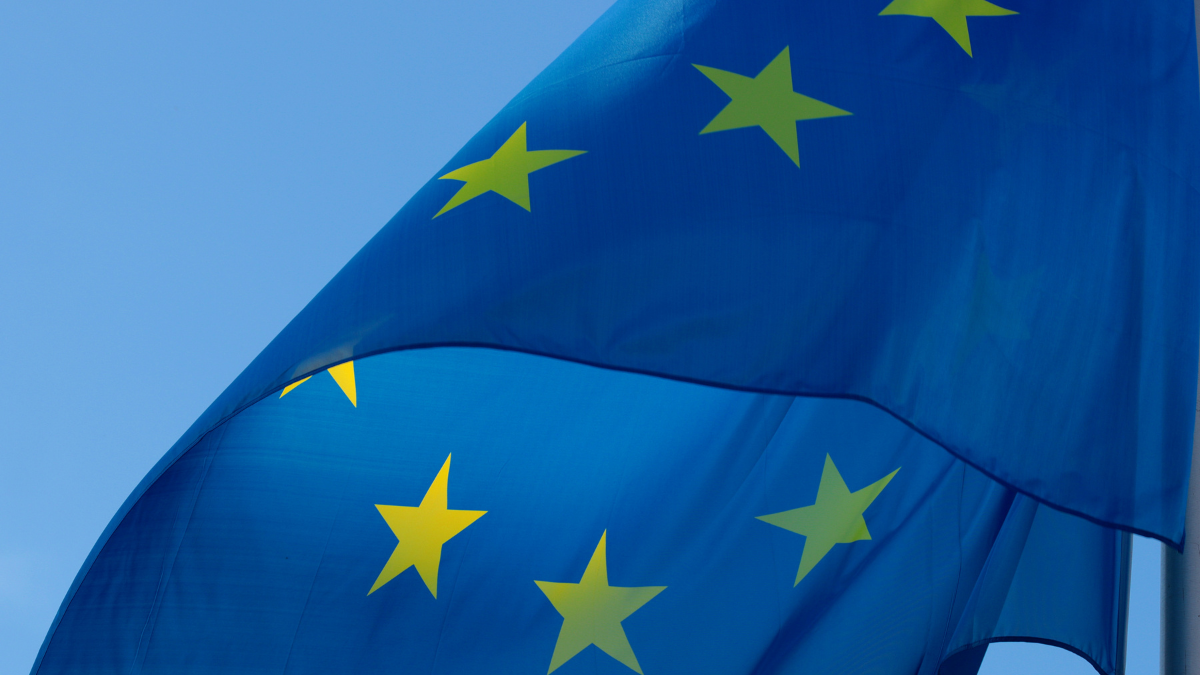
ILGA-Europe has in partnership with national organisations provided the European Commission with detailed documentation on human rights violations against LGBTI people in all candidate and potential candidate countries throughout the year which is included in the submissions to the Progress Reports.
2023
2021
2020
2019
2018
2017
2016
Turkey acquits 19 LGBTI+ Pride marchers, honouring fundamental human rights, domestic law, and international commitments
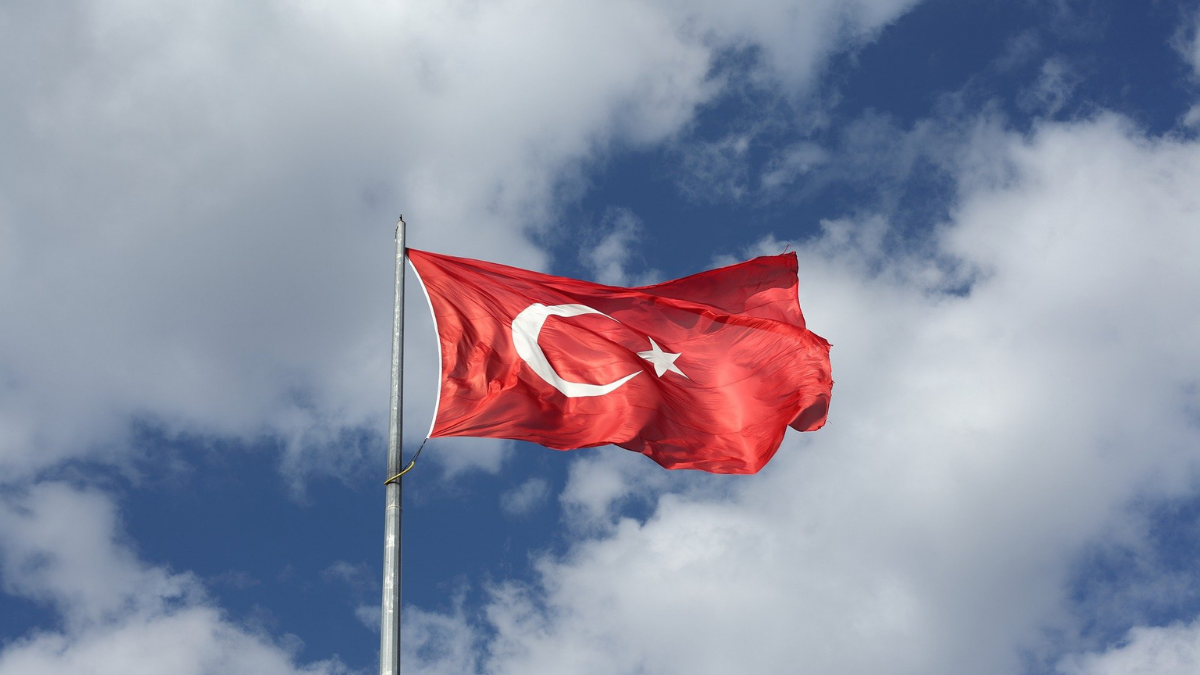
Leading European LGBTI rights organisation, ILGA-Europe welcomes the decision of a Turkish court to acquit 19 activists, who were charged with “unlawful assembly” for their participation in a peaceful LGBTI+ Pride march in 2019.
Today 18 students and one academic who were detained, charged and prosecuted for their participation in a peaceful LGBTI+ Pride march at Turkey’s Middle East Technical University (METU) in the city of Ankara on 10 May 2019 were acquitted, having faced charges of “participating in an unlawful assembly” and “failing to disperse despite being warned” and up to three years in prison.
In 2017, Ankara banned all LGBTI+ activities under a state of emergency, but this ban had been lifted in February 2019. Therefore, there was no legal basis for METU’s administration to ban the march in May 2019. Activists and students exercised their legal right to freedom of assembly, celebrating Pride, however, at the university’s behest, police intervened and used excessive force to disperse the march, detaining 22 participants, of which 19 were charged.
Today the judge at Ankara’s 39th Penal Court of First Instance found the activists not guilty due to the absence of any element of a crime, and confirmed that Pride is not a crime. The official reasoning for his decision will be published in November.
According to Katrin Hugendubel, Advocacy Director at ILGA-Europe: “We are very relieved to hear of the acquittal of the METU Pride LGBTI+ activists. It is very important for LGBTI+ people in Turkey, but also across the region, to see that, in a context of rising hate-speech against LGBTI+ people by political and religious leaders, the courts and judicial processes protect the rights of all people to freedom of assembly, as enshrined in Turkish law and the European Convention on Human Rights, to which Turkey is party, and thus uphold the rule of law.”
According to Özgür Gür, from the Turkish NGO, ÜniKuir, who was one of the activists facing judgement in the trial: “We would like to point out that from the very beginning, there should have been no trial at all, and now, with this precedent, we will continue to raise the LGBTI+ struggle. We thank everyone for their support.”
Further information:
Read our joint statement with 8 international human rights organisations in English and Turkish here.
For further comment, contact: Ana Muñoz Padrós, ILGA-Europe: ana@ilga-europe.org, +32 493 35 60 55
Turkey acquits 19 LGBTI+ Pride marchers, honouring fundamental human rights, domestic law, and international commitments
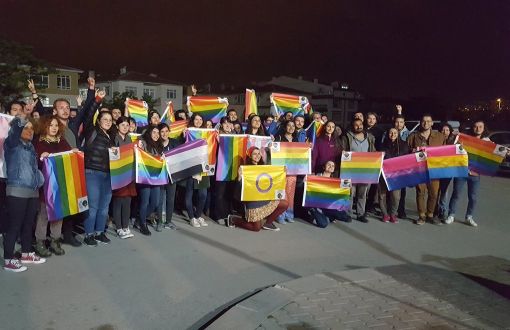
Leading European LGBTI rights organisation, ILGA-Europe welcomes the decision of a Turkish court to acquit 19 activists, who were charged with “unlawful assembly” for their participation in a peaceful LGBTI+ Pride march in 2019.
Today 18 students and one academic who were detained, charged and prosecuted for their participation in a peaceful LGBTI+ Pride march at Turkey’s Middle East Technical University (METU) in the city of Ankara on 10 May 2019 were acquitted, having faced charges of “participating in an unlawful assembly” and “failing to disperse despite being warned” and up to three years in prison.
In 2017, Ankara banned all LGBTI+ activities under a state of emergency, but this ban had been lifted in February 2019. Therefore, there was no legal basis for METU’s administration to ban the march in May 2019. Activists and students exercised their legal right to freedom of assembly, celebrating Pride, however, at the university’s behest, police intervened and used excessive force to disperse the march, detaining 22 participants, of which 19 were charged.
Today the judge at Ankara’s 39th Penal Court of First Instance found the activists not guilty due to the absence of any element of a crime, and confirmed that Pride is not a crime. The official reasoning for his decision will be published in November.
According to Katrin Hugendubel, Advocacy Director at ILGA-Europe: “We are very relieved to hear of the acquittal of the METU Pride LGBTI+ activists. It is very important for LGBTI+ people in Turkey, but also across the region, to see that, in a context of rising hate-speech against LGBTI+ people by political and religious leaders, the courts and judicial processes protect the rights of all people to freedom of assembly, as enshrined in Turkish law and the European Convention on Human Rights, to which Turkey is party, and thus uphold the rule of law.”
According to Özgür Gür, from the Turkish NGO, ÜniKuir, who was one of the activists facing judgement in the trial: “We would like to point out that from the very beginning, there should have been no trial at all, and now, with this precedent, we will continue to raise the LGBTI+ struggle. We thank everyone for their support.”
Joint Statement: METU Pride human rights defenders must be acquitted at upcoming trial

On 8 October at 10:00 GMT+3, 19 LGBTI+ human rights defenders will return to court for what is expected to be the final hearing in the unfair trial they faced for organising and participating in a peaceful Pride march on the campus of Ankara’s Middle East Technical University (METU) on 10 May 2019.
WE, THE UNDERSIGNED HUMAN RIGHTS ORGANISATIONS, CALL FOR THE ACQUITTAL OF ALL THE DEFENDANTS IN THE ABSENCE OF ANY EVIDENCE OF CRIMINAL CONDUCT, AND TO BRING AN END TO THE SERIES OF POSTPONEMENTS OF THE TRIAL HEARINGS, WHICH HAVE SPANNED OVER MORE THAN TWO YEARS NOW.
Türkçe versiyonunu aşağıda bulabilirsiniz.
The 19 LGBTI+ human rights defenders face charges of “participating in an unlawful assembly” and “failing to disperse despite being warned,” for participating in the Pride march on the METU campus on 10 May 2019. Earlier in the year, on 21 February 2019, the Ankara District Administrative Court No. 12 had lifted the blanket ban prohibiting all LGBTI+ activities in Ankara, introduced in 2017 under the state of emergency, on the grounds that it was unlawful as it restricted rights and freedoms in unconditional, vague and disproportionate ways. Nevertheless, the University management used the initial ban as the legal basis to prohibit the march.
The celebration of METU Pride had taken place peacefully on an annual basis since 2011. However, on 6 May 2019, the administration of METU unlawfully banned the peaceful gathering. On 7 May 2019, METU LGBTI+ Solidarity group challenged this ban at the Ankara Administrative Court. In the meantime, since the METU administration’s decision contravened the Ankara court’s February ruling, activists and students exercised their legal right to freedom of assembly and gathered to proceed with their annual Pride celebration on campus. In response, the university administration contacted the Ankara Security Directorate to request their intervention in order to prevent the celebration of the march.
The police used excessive force on peaceful protestors on the day of the march on 10 May: tear gas and plastic bullets were fired at the crowd, students were dragged across the ground, pushed up against trees and sustained head injuries. The excessive use of force deployed during the police intervention violates the right to peaceful assembly, which is protected under domestic law and international laws, including the European Convention on Human Rights, to which Turkey is a party.
In June 2020, the Ankara Administrative Court No. 7 gave a judgement in relation to the case brought by METU LGBTI+ Solidarity, citing the 2019 ruling by the Ankara District Administrative Court No. 12 which had quashed the blanket ban on all LGBTI+ events in the capital, stating that “although specific assemblies and demonstrations may be banned, the right to peaceful assembly and demonstration should be protected as an inalienable right in a democratic society” and that “the State has an obligation to take necessary measures to ensure this right can be exercised securely”. This ruling confirmed that the METU administration’s ban on the May 2019 Pride March on campus had no legal basis. Despite this, the defendants have yet to be acquitted.
The defendants have been facing a trial that has lasted over two years since the opening of the criminal case against them in August 2019, and which hangs like a cloud over their heads and negatively impacts their everyday lives, affecting them personally, academically, and professionally.
We therefore call for the acquittal of all 19 human rights defenders at the hearing of 8 October taking place at Ankara’s 39th Penal Court of First Instance. We further call on the Turkish authorities to ensure that the security forces and METU administration uphold the right to freedom of peaceful assembly as enshrined in domestic law and international human rights law, by ensuring that future Pride marches at METU campus and in Ankara take place without obstruction. We also call on the Turkish authorities to conduct a prompt, independent and impartial investigation into the excessive use of force by the police on the campus, and for police officers responsible for arbitrary or abusive force to be brought to justice.
- Agir ensemble pour les droits humains
- Amnesty International
- Civil Rights Defenders
- Front Line Defenders
- Human Rights Without Frontiers
- ILGA-Europe – the European Region of the International Lesbian, Gay, Bisexual, Trans and Intersex Association
- International Federation for Human Rights (FIDH), in the framework of the Observatory for the Protection of Human Rights Defenders
- Netherlands Helsinki Committee
- World Organisation Against Torture (OMCT), in the framework of the Observatory for the Protection of Human Rights Defenders
Ortak Açıklama: ODTÜ Onur Yürüyüşü’ne katılan insan hakları savunucuları gelecek duruşmada beraat etmeli
8 Ekim günü saat 10.00’da, 19 LGBTİ+ hakları savunucusu, 10 Mayıs 2019’da Orta Doğu Teknik Üniversitesi (ODTÜ) kampüsünde gerçekleştirilen barışçıl Onur Yürüyüşü’nü düzenledikleri ve yürüyüşe katıldıkları gerekçesiyle haksız yere yargılandıkları davanın karar duruşması olması beklenen duruşmaya katılmak için mahkemede olacak. Biz, aşağıda imzası bulunan insan hakları örgütleri, suç teşkil eden bir fiile ilişkin herhangi bir kanıtın yokluğunda, yargılanan tüm kişilerin beraat etmesi ve iki yıldan uzun süredir devam eden davanın duruşmalarında yapılan bir dizi ertelemeye artık bir son verilmesi için çağrıda bulunuyoruz.
19 LGBTİ+ hakları savunucusu, 10 Mayıs 2019’da ODTÜ kampüsünde gerçekleştirilen Onur Yürüyüşü’ne katıldıkları için “kanuna aykırı toplantıya katılmak” ve “ihtara rağmen kendiliğinden dağılmamak” ile suçlanıyor. Aynı yıl daha önceki bir tarihte, 21 Şubat 2019’da Ankara 12. Bölge İdare Mahkemesi, 2017’de olağanüstü hal döneminde çıkartılan ve Ankara’daki tüm LGBTİ+ etkinliklerini yasaklayan genel yasağı temel hak ve özgürlükleri koşulsuz, belirsiz ve ölçüsüz olarak kısıtlandığı ve hukuka aykırı olduğu gerekçesiyle kaldırmıştı. Buna rağmen üniversite yönetimi, önceki yasağı yürüyüşü yasaklamak için yasal bir dayanak olarak kullandı.
ODTÜ Onur Yürüyüşü 2011’den beri her yıl barışçıl biçimde gerçekleştiriliyordu. Ancak 6 Mayıs 2019’da ODTÜ yönetimi barışçıl Onur Yürüyüşü’nü hukuka aykırı şekilde yasakladı. 7 Mayıs 2019’da ODTÜ LGBTİ+ Dayanışması Ankara 7. İdare Mahkemesi’ne başvurarak yasağa itiraz etti. Bu sırada, ODTÜ yönetiminin kararı Ankara 12. Bölge İdare Mahkemesi’nin Şubat ayındaki kararına aykırı olduğu için aktivistler ve öğrenciler yasal toplanma özgürlüğü haklarını kullanarak Onur Yürüyüşü’nü gerçekleştirmek üzere kampüste toplandı. Bunun üzerine üniversite yönetimi, yürüyüşü engellemek için Ankara Emniyet Müdürlüğü’yle iletişime geçerek müdahale edilmesini istedi.
Yürüyüş günü, 10 Mayıs’ta, polis barışçıl protestoculara aşırı güç kullandı: Kalabalığa biber gazı ve plastik mermiler sıkıldı, öğrenciler yerlerde sürüklendi, ağaçlara itildi ve kafalarından yaralandılar. Polis müdahalesi sırasında başvurulan aşırı güç kullanımı, Türkiye’nin taraf olduğu Avrupa İnsan Hakları Sözleşmesi dahil olmak üzere uluslararası hukuk ve iç hukukun güvence altına aldığı barışçıl toplanma hakkının ihlalidir.
Haziran 2020’de Ankara 7. İdare Mahkemesi, Ankara 12. Bölge İdare Mahkemesi’nin 2017’den beri başkentteki tüm LGBTİ+ etkinliklerine yönelik genel yasağı kaldıran 2019’daki kararına atıfta bulunarak “belirli toplantı ve gösteri yürüyüşlerinin yasaklanması mümkün olmakla birlikte barışçıl toplantı ve gösteri yürüyüşü hakkının demokratik bir toplumda vazgeçilmez haklardan biri olarak korunması gerektiği”ni ve “devletin toplanma özgürlüğünün kullanılmasını sağlamak için gereken önlemleri almakla yükümlü olduğu”nu belirtti. Bu karar, ODTÜ yönetiminin Mayıs 2019’da kampüsteki Onur Yürüyüşü’ne getirdiği yasağın hukuki dayanağı olmadığını doğruladı. Buna rağmen yargılanan kişiler hâlâ beraat etmedi.
19 kişi, Ağustos 2019’da haklarında açılan ve iki yıldan uzun süren, bu süre boyunca onları kaygılandıran ve günlük yaşamları üzerinde olumsuz etkiler yaratan; onları kişisel, akademik ve mesleki anlamda etkileyen bir davayla karşı karşıya.
Bu nedenle, 8 Ekim’de Ankara 39. Asliye Ceza Mahkemesi’nde görülecek duruşmada 19 insan hakları savunucusunun tamamının beraat etmesi için çağrı yapıyoruz. Türkiye yetkililerini, güvenlik güçleri ve ODTÜ yönetiminin, gelecekte ODTÜ kampüsünde ve Ankara’da yapılacak Onur Yürüyüşlerinin herhangi bir engellemeyle karşılaşmaksızın gerçekleştirilmesini sağlayarak, iç hukuk ve uluslararası insan hakları hukukunca güvence altına alınan barışçıl toplanma özgürlüğü hakkını korumasını sağlamaya çağırıyoruz. Ayrıca, Türkiye yetkililerini, polisin kampüsteki aşırı güç kullanımına ilişkin hızlı, bağımsız ve tarafsız bir soruşturma yürütmeye ve keyfi veya görevi suiistimale dayalı güç kullanan kolluk görevlilerinin adalet önüne çıkarılmasını sağlamaya çağırıyoruz.
- Agir ensemble pour les droits humains
- Uluslararası Af Örgütü
- Civil Rights Defenders
- Front Line Defenders
- Sınır Tanımayan İnsan Hakları Örgütü
- ILGA-Avrupa (Uluslararası Lezbiyen, Gey, Biseksüel, Trans ve İnterseks Derneği Avrupa Bölgesi)
- Uluslararası İnsan Hakları Federasyonu (FİDH) – İnsan Hakları Savunucularının Korunması için Gözlemevi
- Hollanda Helsinki Komitesi
- İşkenceye Karşı Dünya Örgütü (OMCT) – İnsan Hakları Savunucularının Korunması için Gözlemevi
The stark situation for LGBTI rights in Eastern Europe and Central Asia
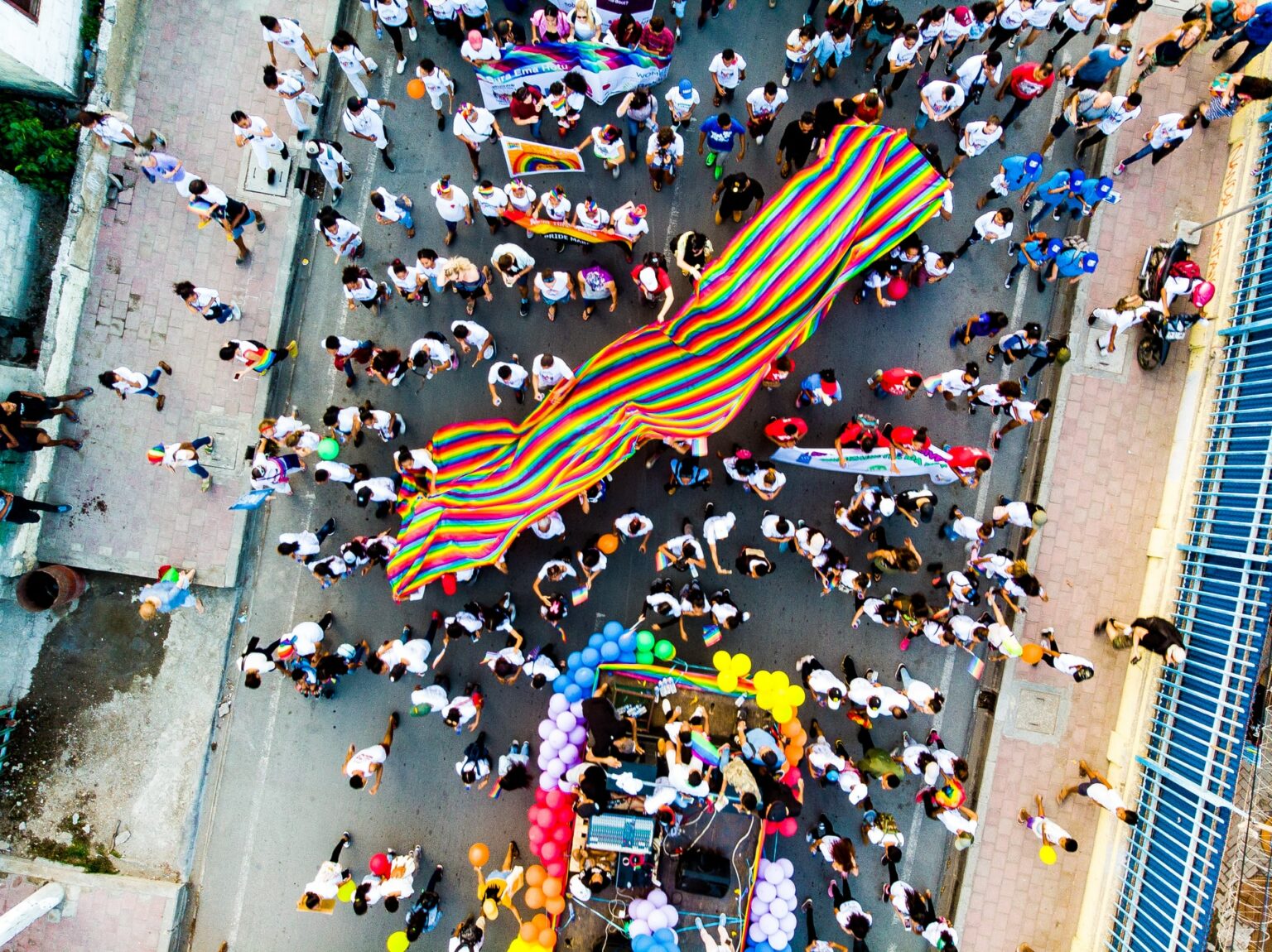
Hungary and Poland have been in the spotlight a lot for their anti-LGBTI policies, but they are not the only countries where political leaders are acting against LGBTI communities. Here, we take a look at the political situation for LGBTI people in Eastern Europe and Central Asia in the first half of 2021.
The COVID-19 pandemic and anti-LGBTI forces have deeply impacted the LGBTI movement in Europe and Central Asia. Some governments used the health crisis against human rights defenders by limiting their use of public space, while the same restrictions have not applied to many of the activities of the anti-LGBTI movement. As a result, the pandemic has accelerated deterioration of the human rights protection systems, disrupted effectiveness of monitoring and documentation, and made the work of activists even more precarious. The worrying trends that began in 2020 continue to grow this year as a number of laws proposed and adopted in different countries limit the ability of civil society to answer to current challenges and political crackdowns.
The Dignity for All: LGBTI Assistance Program is a consortium formed by ILGA-Europe and seven other leading human rights and LGBTI organisations around the world. It provides emergency assistance, advocacy funding, and security support to human rights defenders and civil society organisations under threat or attack due to their work for LGBTI rights. Since 2012, the program has provided emergency assistance grants to human rights defenders and civil society organisations in 95 countries and territories.
Thanks to this program, we’ve been able to support the movement in the region for almost a decade. The number of requests for emergency assistance in the first six months of 2021 has considerably increased. A lot of requests were related to the repercussions of anti-LGBTI actions, the pandemic, and wellbeing issues, along with the usual security assistance provided by the program.
Through this work, we’ve been able to assess the context in the region and provided funding to civil society organisations to respond to developments like those described below.
Take a look at the political situation for LGBTI people in Eastern Europe and Central Asia in the first half of 2021:
Albania: hate speech and hate attacks
In mid-June a trans activist in Tirana was physically attacked one week after heavy hate speech in the media around a discussion on LGBTI family rights. The debate was manipulated with headlines such as ”The LGBTI community aims to remove the word mother”. Other activists in Albania received hundreds of targeted death and rape threats. This clearly shows the trend of online hatred spilling over to the real world when the perpetrators feel encouraged by hate speech to physically attack activists and the LGBTI community.
Armenia: ground-breaking judgment for LGBTI people
While the LGBTI movement continues to deal with the shockwaves of the Nagorno-Karabakh conflict, a ground-breaking judgement was delivered in Yerevan, Armenia in May, finding discrimination based on gender identity and sexual orientation in a case concerning denial of access to a sports club services to two trans people and a gay man. For the first time the court applied the Armenian Constitution, the European Convention on Human Rights and the case law from the European Court of Human Rights on discrimination in relation to sexual orientation and gender identity discrimination. The decision sets an important precedent for national case law and is a milestone in ensuring equal rights to accessing services as well as other areas of life for LGBTI people living in Armenia.
Belarus: amendments to the law could backfire against LGBTI groups
In spring, amendments to the law ‘On Counteraction to Extremism’ were adopted. The new definition of extremism is formulated in a vague way and could be applied to LGBTI groups’ activity. The wording goes: “Extremism is considered incitement to hostility or discord, including against public order and public morality, property, health, personal freedom, honor and dignity of the individual, and the structure of family relations.” The draft was not published on official websites for consultations until it was signed by the President. It is currently in force in a context that is increasingly unsafe for any dissent.
Bulgaria: anti-LGBTI rhetoric and threats to events
As in previous years, right wing parties used anti-LGBTI rhetoric to misinform the population and win voters ahead of the elections that took place in July. After LGBTI activists received threats to their physical security and to their events, they requested additional security measures during Pride marches.
Kyrgyzstan: Constitution limiting human rights
In April, Kyrgyzstan adopted a new Constitution following a nationwide referendum. Nearly 80% of the voters backed the new Constitution containing provisions that could potentially restrict LGBTI activism. One of them, aiming to ensure financial transparency of public associations, is very similar to the law on “foreign agent” in Russia, which has significantly restricted the activities of human rights organisations. Another harmful provision reads: “in order to protect the younger generation, activities that contradict moral and ethical values and public conscience of the people of the Kyrgyz Republic may be restricted by law”. This provision might prohibit any LGBTI community organising and movement-building activities in Kyrgyzstan. A video was released demonising an LGBT+ organisation, revealing the names of most of the staff members, misgendering and publicly outing them.
Latvia: LGBTI family rights move backwards
In January, the Latvian Parliament passed a draft law to restrict the definition of family in the Constitution, ruling out same-sex partnerships and same-sex families. This contravenes international human rights law and European jurisprudence, as well as Latvia’s Constitution and the decisions of its Court. Latvia is one of only six countries in the EU that provides no recognition of partnership for same-sex couples and while there have been promising developments in the last two years, this vote is a worrying step backwards.
Turkey: official hate speech and withdrawal of the Istanbul Convention
On 27 December 2020, the Turkish Parliament passed a new NGO law called “Bill on Preventing the Spread and Financing of Weapons of Mass Destruction”. However, only six articles include means and regulations to combat financing of terrorism. The rest grant the Ministry of Internal Affairs and the President wide authority to restrict the activities of civil society organisations. According to the law, the Minister can suspend the board members of NGOs and apply to the court with an immediate request of shut down the organizations, NGOs might not be able to access funds and grants from abroad upon the decision of the Minister, and official audits can be conducted by any civil servants who usually don’t have competence and loyal to the government. Many organisations have already received notes of upcoming audits just weeks after the law came into force.
Hate rhetoric from authorities against the LGBTI community and activists continues in 2021, creating an atmosphere of LGBTI hatred in society. President Erdo?an has declared: “There is no such thing as LGBT. This country is nationalist, spiritualist and is walking to the future with these values” and “let’s not worry about what lesbians say”. Another prominent figure in Turkey, the Minister of Interior, Süleyman Soylu was banned on Twitter twice after saying “LGBT perverts”. He also referred to LGBT as “perversion” during a live broadcast on Haber Global television channel and added “this LGBT thing is something that is being propagated to us from Europe and the USA. This thing can break our family structure.”
In March, Turkey announced its withdrawal from the Istanbul Convention by a Presidential decree, without debates in Parliament and society at large. This is a huge step back for protecting women’s rights and a negative precedent for other countries that are signatories of the convention.
In June, Istanbul Pride was banned for the seventh year in a row. In protest, the march took place on Saturday, 26 June. Police arrested almost 50 people, including journalists, violating their right to freedom of assembly and expression. Several hours later people were released and no charges were pressed.
The Frontline: Elif Shafak and the Power of Our Stories
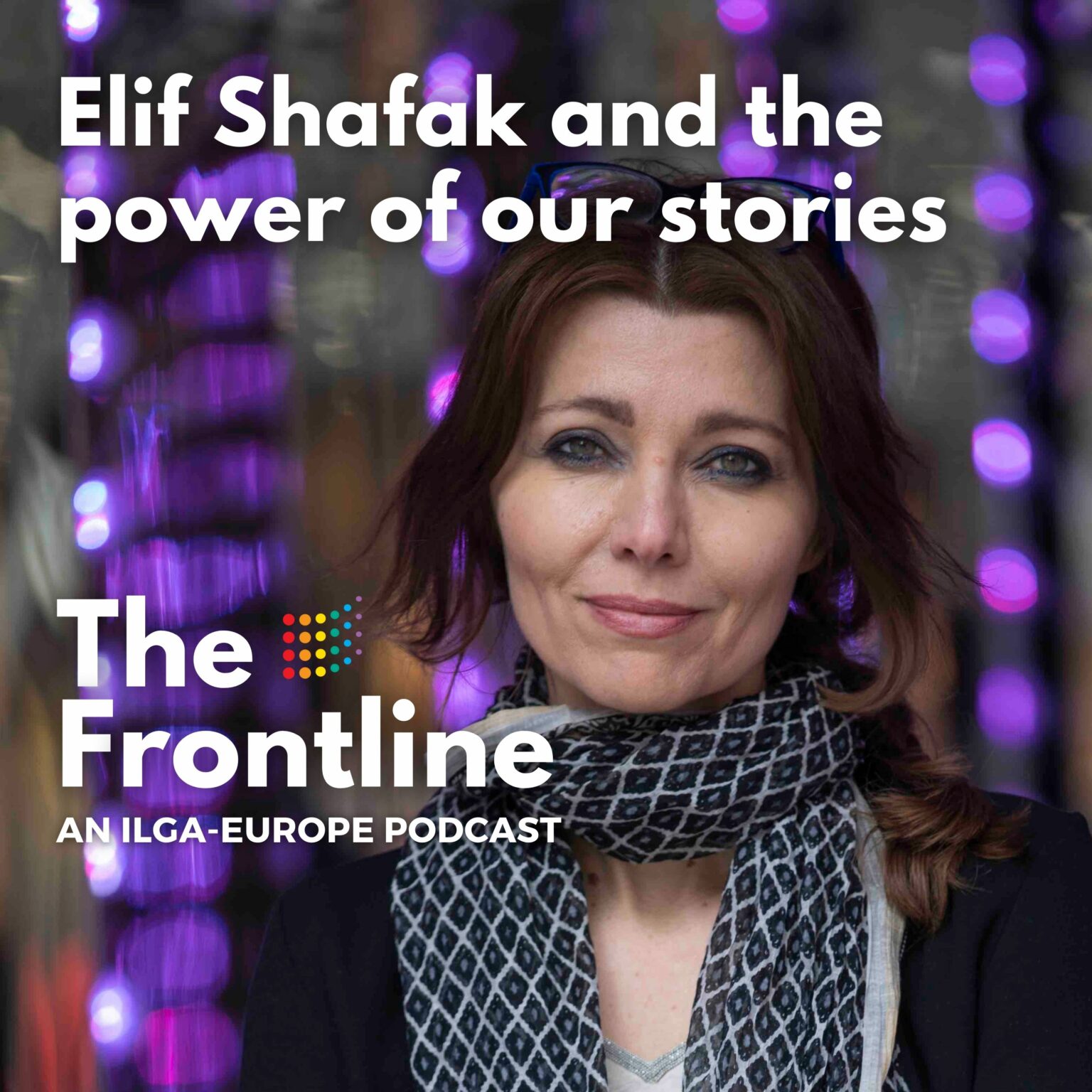
The author of 18 books of fiction and non-fiction, including The Bastard of Istanbul,Honour, and Three Daughters of Eve, Elif has come under fire from the Turkish authorities for writing about human rights abuses that its government denies. Her most recent novel, 10 Minutes 38 Seconds in this Strange World, which tells the story of a sex worker in Istanbul, was shortlisted for the Booker Prize in 2019. It sparked another investigation by Turkish prosecutors for addressing child abuse and sexual violence in her writing.
Elif joins ILGA-Europe’s Executive Director, Evelyne Paradis to talk about a widespread decline of democracy, the fight for LGBTI rights and equality, the power of our stories and her own journey towards being a vocal member of the LGBTI community.
Listen below or click here to listen and subscribe to The Frontline on your favourite podcast platform.
ILGA-Europe’s submission to Progress Reports of the European Commission 2020
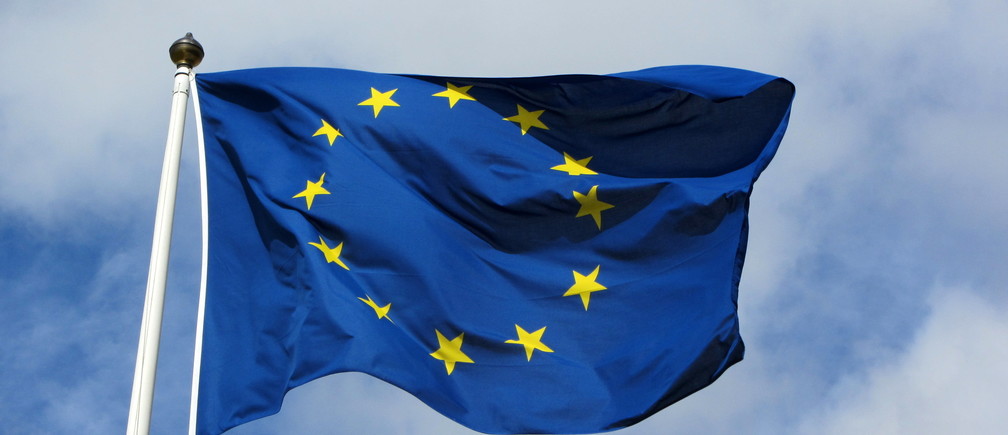
LGBTI ENLARGEMENT REVIEW 2020
In order to ensure an accurate representation of the developments relating to the human rights of LGBTI people ILGA-Europe and ERA, together with our member organisations in EU accession countries, have compiled this submission to the Progress Reports of the European Commission.
This report reflects developments in the recognition and respect for the human rights of LGBTI people in each accession country during the period from January through December 2020. It is intended to assist the European Commission in assessing the progress made en route to EU accession in each country to date. In addition to outlining key developments and challenges on the road to LGBTI equality, the report also highlights gaps in legislation and policy for the promotion and protection of the human rights of LGBTI people, and the priorities which authorities in each country should tackle in the coming year, as identified by LGBTI activists in the respective countries.
In light of the devastating impact of the Covid-19 pandemic this year on the LGBTI community and work of LGBTI activists, we have also included information about its impact, and the necessary assistance that the EU can help provide in supporting LGBTI people. ILGA-Europe and ERA members have reported that the LGBTI community has been heavily impacted by the Covid-19 pandemic and that state support services have failed to reach the most vulnerable in LGBTI communities. As a result, LGBTI NGOs have had to adapt their previous plans and budgets to cover humanitarian aid gaps within the State response to the crisis, providing food, hygiene kits and shelter to LGBTI people who have lost their jobs or been rendered homeless. This has left organisations depleted in terms of human resources and finances, and they have found donors and funders in many cases to have not been flexible with their funding. Even funding specifically earmarked for Covid-19 response has not been possible to use for service provision and support. Given the unsustainable response by governments, it is more essential than ever for the EU to support LGBTI people in the accession countries via funding for supporting LGBTI communities and community-needs advocacy. This funding is essential in order to allow LGBTI NGOs to support the community during the pandemic and ensuing economic crisis, and for them to also have the financial and human resources capacity to continue advocacy work for legislative and policy change within the accession framework. A survey conducted by ERA with its members in the summer of 2020, found that the Covid-19 related measures taken by governments have had numerous negative consequences for the LGBTI+ community including: interruption of essential health services by state institutions, inability to receive essential community services from NGOs, heightened levels of homelessness, increased incidents of domestic violence, closure of LGBTI+ businesses, a significant loss of jobs and rising mental health problems. LGBTI+ organisations have also faced challenges due to the Covid-19 pandemic measures including: loss of funding, closure of community centres, cancellation of services and other activities as well as a general shift towards emergency humanitarian work for LGBTI+ people in need.